Discover more from Pope Head Post
“We have become a theater for the world, for angels and human beings.”
(1 Corinthians 4:9)
Saint Genesius
The year is 303 AD. The sun rises in the sky as the great emperor Diocletian takes his seat in the theater. The emperor is a living god dwelling amongst men, he looks upon the stage ready to watch the drama unfold, a drama that occurs solely through the grace of this living deity. He knows that with a snap of his fingers, he could have the play stop or start, its actors made inconceivably wealthy or crucified along the Via Appia.
Genesius and his troupe of actors appear on the stage. He looks upon his Lord in the audience with reverence, and the talented pagan has quite a show planned for the emperor. The play is to be a comedy, mocking the Christians and their ridiculous sacraments. He has done much preparation for this role, attending Christian ceremonies in secret, so he can perfectly mock and subvert their melodramatic rites. He plays the part of a catechumen. The act begins and he dances across the stage, imitating and exaggerating the hymns and cries of the Christians. At a certain point, the punch line is delivered. Feigning to be sick, he lays down, begging his cohorts to relieve his suffering. He announces that he is soon to die, and wants to become a Christian and that they should "baptize" him. The acting cleric comes on stage in order to "baptize" him. The audience is howling in laughter.
The words are spoken, and the water is poured.
The jovial crowd roars as lions, giggling and shrieking, uncontrollable laughter and applause. Waves of jubilation, as their hatred for the Christians is vindicated and reaffirmed by the spectacle, a cathartic joy that erases any doubt towards the persecution of these creatures.
But Genesius is silent. Genesius doesn’t move. Some kind of stitch has been formed, or possibly torn, deep inside his soul, as a disruptive warmth consumes his countenance. Genesius in this instant knows the Grace of God.
Genesius at this moment has been spiritually displaced, internally removed from the drama, but the play continues. He stands up and proclaims with all his breath “Christ is Lord!”
The audience laughs even harder, the sincerity of his words is so convincing, that he almost sounds like a true believer. He turns to his fellow actors and insists that Christ is real, and the actors, giddy with the deliciously authentic delivery of Genesius's performance ramp up the campiness of their own theatrics. He tries screaming the truth of Christ as his cohorts do the same. The audience is in fits of laughter. Everyone thinks the play is continuing, except Genesius, who tries his hardest to destroy the mocking spectacle, while ironically just elevating it.
Finally, he turns to the emperor. He casts his finger at the being who had been a god to him but moments before. In fact, it was Diocletian himself who had instituted some of the most radical advancements in the imperial cult, when some years before he demanded the proskynesis from his subjects and adopted the adjective sacrum for all things pertaining to the imperial person.
He rebukes the emperor, he proclaims the truth. Diocletian laughs at this convincing performance.
Imagine the frustration, the horror, experienced by Genesius in this moment. Try as he might he cannot escape the confines of the drama. His protests and proclamations of the truth are simply subsumed by the inertia of the stage.
Finally, the emperor thinks the actor may be serious after Genesius proclaims he will die for his beliefs. Diocletian, orders the presence of an executioner as a way to gauge the actors earnestness, unsure now what is truth and what is drama in Genesius act, wondering if he will break character and stop the act at the last moment. But Genesius does not say a word, and accepts the sword upon his neck with a look of holy tranquility.
Only through this death is the audience silenced, and the charade destroyed.
There is much to reflect on in this historical movement. Even after the psychodrama had been subverted, the player had awakened, the rest viewed him as still subsumed. He could only prove his seriousness, and end the play through his own death, via martyrdom. The term martyr is a greek term for a court room witness, in this case, a witness to Christ through death. The audience and Diocletian believed they were viewing a drama of their own invention, but through Genesius’ movement, the revelation becomes obvious, that the audience and actors themselves are in fact part of a larger drama. A metaphysical drama, where Diocletian is not an omnipotent god controlling and separated from the stage, but merely a player himself on a larger stage. The illusion has been displaced. The players reoriented with the Truth.
“We have been made a theater for the world, to angels as well as to human beings.”
_____________
In our terrible epoch of modernity, the whole world has become a stage, upon which endless pagan psychodramas play out and occlude our relationship with the divine drama, which is the mystery of salvation. I hope to make this clear and offer an escape from the witches’ spells that haunt the charnel yard of modernity. From the ironic and meta-ironic performances that possess men like marionettes, obfuscating their orientation to the true drama, the drama of salvation.
______________
History as Mystery
In 2017, Giorgio Agamben released a book entitled “The Mystery of Evil,” in which he explored the resignation of Benedict XVI and the Church’s relationship with Eschatology. He focuses primarily on the Second Epistle to the Thessalonians and the Mystery of Iniquity. I will be drawing heavily from it in this section.
Central to Agamben’s claim is that the Church has lost interest in “last things.” The Church no longer looks to the Parousia, and therefore they have lost their proper orientation with God and History.
To understand the relationship between the Theater of Man and the Theater of God, to understand the Witch House, it would be helpful to revisit some passages from Agambens work.
First, lets look at Pauls second epistle to the Thessalonians.
What is being described here is the eschatological drama. I am now going to let Agamben speak for himself rather than paraphrase. Stick with me and I will bring it all together.
Reread it again because I will not summarize and we will be building heavily on this.
________________
“The wisdom of God is therefore expressed in the form of a mystery, which is nothing other than the historical drama of the passion, namely an event that really happened, which the uninitiated do not understand and the faithful grasp for their salvation. In the time of the end, mystery and history correspond without remainder.”
God reveals himself by acting through history, through the historical drama of salvation, which will conclude with the final eschatological stage of the drama and the Parousia. This metaphysical narrative and structure is that which the Christian must orient himself towards, for it is the Truth, and the vehicle of his salvation. He must understand his proper role. The problem is that there exist counter dramas, which obfuscate the truth of the central drama of salvation, and humanity’s relationship with it.
Two millennia ago, when the kerygma was first declared, the Christian message was actively deconstructing the pagan mythologies, which were at their core types of counter dramas. The apostles proclaimed that the gods and rituals of the pagans were but vapor, to be effortlessly blown away by the breath of Christ. The same breath, that would ultimately defeat the antichrist at the end of time. The omnipotence of Christ over all idols and false cosmologies, the entities which are recycled and given life via ritual supplication and participatory reenactment. The gospel was declared to shatter, a bolt of lightning smiting the false gods and the individuals enraptured by them. This is all crucial to understand going forward, this dynamic between the divine drama of salvation and the false dramas of the pagans.
We will explore one more event before going forward.
There is something truly extraordinary occurring here when observed through the framework we have established. After performing miracles through Christ, the Lycaonians insist that Paul and Barnabas are the gods Zeus and Hermes. After performing something extraordinary, the masses refuse to take their word on how these things were performed. This tragically comedic scene then unfolds, with the people insisting Paul and Barnabas are gods, and not just any gods, but the gods from their pantheon, with Paul and Barnabas ripping their hair out trying to explain that they arent. The people acknowledge the miracle, but not the source. They are trying to subsume them into the pagan psychodrama, to contextualize and wicker them into their narrative, to transform them into ritualistic pieces in their established mythological drama. But Paul and Barnabas reject this, they reject all attempts of this, and subvert the dramatic process. They could have been worshipped as gods, but they absolutely shatter the mirage and the "play." "No, Christ is where power comes from, not your pagan mythology, we will not be players, Christ will defeat your gods by the breath of his mouth." Compare this event to the play of St Genesius. I have never before seen these two events analyzed in light of each other, which is a shame. I want you to mull over the parallels, and what they can both tell you about the nature of this all.
___________________
Ritual and Theater
Before continuing, it would be pertinent to briefly examine the relationship between ritual and dramatic theater as we know it at a foundational level. (both distinctions tend to dissolve into the ether at the level of divine drama, which transcends both, as the audience of the divine drama is God himself and the mystical goal of salvation). What is the difference between the play of Genesius and the pagans attempting to worship Paul?
Some posit that dramatic theater emerged from ritualized ceremonies, but we can never truly know with certainty. It is way beyond the scope of this article to supply a comprehensive analysis of the differences between the two, so instead I will simply draw some basic distinctions. The first distinction between early theatre and ritual can be elucidated in a negative observation by Aristotle. “who in his Poetics defined theatre in contrast to the performances of sacred mysteries: theatre did not require the spectator to fast, drink the kykeon, or march in a procession; however theatre did resemble the sacred mysteries in the sense that it brought purification and healing to the spectator by means of a vision, the theama.” Theatre requires little of the spectator, it lacks the seriousness and expectations of ritual, no preparation on the part of the audience. My second and prime distinction, if admittedly flawed, is that theatre is for mere entertainment (at least superficially) and ritual to enact a kind of definite change (whether mental or metaphysical) in all of those involved. Its far more complicated then that, but that’s the gist of it. (To give a hint at where this is all going, what happens when a society lacking deeper rituals is fed theater that is intentionally used to enact change upon the participants? To give a ritualistic framework under the guise of mere entertainment?)
Rituals also tend to be inextricably bound to geographic location. Ritual sites are associated with certain deities and their rites. While theater can occur anywhere, the same story can be played out in two completely different physical locations. Or, as we shall later see, beamed across the entire world via Radiowaves. Ritual and theater collapse into each other in the participation of societal psychodrama. Lets explore this idea of sacred geography and its connection to ritual.
Sacred Geography
The brilliant minds behind the Lord of Spirits podcast did a truly fantastic episode on sacred geography, so I am going to quote them verbatim from a couple of sections of their Mountain of God episode.
This idea of being able to change or manipulate a location through words, by reordering its position within a web of relationships will be important for later.
So we have this idea of primitive people having an interaction with an entity or “deity” in a specific location, and through ritual they reenact an event associated with it or a certain interaction they had with it. Because a ritual in a sense “is to make a previous day today, to make a previous event recur, to participate in that event, to realize it again to re-present it, not represent it in some kind of disconnected way, but re-present it.” This is why in early Christianity, the martyrs would meet their deaths on top of these old ritualistic sites, in a sense Christianizing them, and why Churches are frequently on top of old pagan temples. In Gods divine dramatic plan, in the mystery of the logos, he would have a martyr witness him on one of these old sites, destroying the old ritualistic psychodramas associated with it, and forever tinging it with the blood of the saint in the minds of the community. Subverting and sublating it. Forever changing the communities relationship with the space, from one of pagan psychodrama to consecrated Christian worship. And this is what early Christians quickly did through out the world, every time they came across a new people.
The pagan psychodramas were extinguished, their holy sites reconsecrated, and the ritualistic impulse redirected and cemented into a new unifying ritual. The Catholic liturgy. Itself a kind of psychodrama, a ritualistic reenactment of the sacrifice of Christ. And it had tremendous effects. If you ever doubt the efficacy of ritual or psychodrama, look how the Latin Mass managed to constitute such a strong binding agent, religiously, morally, doctrinally etc.
And so it is no wonder, that the Christian epoch totally extinguished secular theater for over a millenium. And that the re-emergence of theater, coincided with the erosion of Christian unity, and the re-emergence of the pagan impulse across the land.
But we will get to all that soon, first, we must introduce the Witch.
__________________
Must be the Season of the Witch
The Witches I speak of can be taken literally or metaphorically, it matters little. Witches have always operated on the margins, in the shack outside of town, in the sacred grove on the side of the mountain. Magicians, diviners, spellcasters, shamans etc had synergistic relationships with their communities throughout history. The Roman emperor had a whole college of Haruspices, liver diviners, at his beck and call to help him orient himself with future events, to glimpse past the curtain of causality through the viscera of a goat. This is an example of institutionalized witchcraft. Christianity changed all that. Christianity was radically anti-occult, it condemned all forms of divination or sorcery in the strongest terms. In fact, Emperor Diocletians persecution of Christians may have been due to a perceived disruption of the Haruspices ability to divine because of the presence of the Christians. “The haruspices, diviners of omens from sacrificed animals, were unable to read the sacrificed animals and failed to do so after repeated trials. The master haruspex eventually declared that this failure was the result of interruptions in the process caused by profane men. Certain Christians in the imperial household had been observed making the sign of the cross during the ceremonies and were alleged to have disrupted the haruspices' divination. Diocletian, enraged by this turn of events, declared that all members of the court must make a sacrifice. Diocletian and Galerius also sent letters to the military command, demanding that the entire army perform the sacrifices or else face discharge.”
Christianity has always been at odds with witchy practices, with pharmakon. There are many nuances in all of this and to explain the relationship between the two would fill a whole book. When Christendom was at its strongest and most united, witches were on the out. But this begins to shift during the Renaissance. This is when the freaks take charge. When the neoplatonic hermeticists and kabbalists in the Medici court spread their poison across the world. When Pletho brings his grimoires to the West. When a distinction is made between black magic and white, when the elite become obsessed with these occult frameworks and cybernetic loops. When the Great Work switches its subject from metal to man. Societal alchemy, societal spellcasting. Mind control via symbol and sign. I have spoken about this ad nauseam and if you want a detailed account of this process check my archive.
Our modern society frames the anti-occult struggle of the Christian past in the most negative terms possible. Hell, whenever someone is unfairly attacked it’s termed a “witch hunt.” In our modern minds, none of the individuals engaged in the occult in the past could have been up to no good, because “magic” does not exist. “They were all poor herbalists persecuted by the big mean Church.” But our collective refusal to believe in the power of the occult, in all its various manifestations, just leads us to be more susceptible to its influence.
What i’m interested in is modern political witchcraft. The witches in the board rooms.
First, what is magic, what is witchcraft? Magic is in a sense using words and other symbols to reorder relationships. (Mentally, physically, or metaphysically). Modernity is full of such magical applications. For some digestible examples, so you dont think im too loco, lets use some basic examples. Advertising looks to reorder mans relationship with certain products, utilizing logos (sigils) and audio jingles (incantations) to harness and redirect our desire. When you pull past the banal veneer of the corporation, you realize these board rooms function as conjuring circles, creating the perfect image to tantalize and magnify the masses into parting with their cash. Spiritual vampires. Propaganda is another example, which reorders mans relationship with their nation or community, either in external assaults or internal. Intelligence agencies from the right angle appear to be federations of mages. It is no wonder then, that the most notorious magicians in English history, John Dee and Aleister Crowley, were both intelligence assets for the English Crown. Look it up. The modern spells are eerily similar to the old ones.
And other spells, reorder our relationship with the land.
Let me give an example, before we really get into it all, so I can ease you into this idea. How words can affect our relationship with the land. Remember the Keystone Pipeline? All the protests over it? The intensity was due to the masses being told the land was sacred to the rites of the indigenous people. “Its there sacred mountain!” But I thought you didnt believe in the supernatural? “Uh, I dont, but its you know, sacred. Sacred to them.” But they in effect internalize the sacral quality of the land due to the indians sacralizing it. This is admittedly a very basic and crude example, and the full range of implications of the power of mystical toponomy is too much for most to wrap their head around at first. But if they can resacralize the land, can they reanimate it as well? Can they bring forth the old pagan psychodramas that were crushed by the gravity of the cross?
We have to understand the tremendous power of the word, of images, of spectacle. What the modern witches are doing is giving form to old pagan psychodrama and ritualized spectacle, precisely because modern man no longer believes in such things, and no longer believes in Christ to nullify the pagan impulse.
Satan and his magicians spin yarns, gnarled connective sinew between places and events, crafting counter myths which reorder (disorder) our relationship with reality and the truth. This is done through word and ritual. Characters summoned to the stage of our conscious to dazzle and entrance us into reordering our relationship with our fellow man and divinity itself. Due to the lackadaisical attitude of Christianity today, the disappearance of the Church’s presence, these new revolutionary dramas have returned to the world stage, subverting the divine drama, the mystery of the logos in the minds of man. Now im not saying they are in any way influencing Gods actions, they are powerless to do that, but they are subverting man’s relationship to the divine drama of history, to Gods unveiling. During the days of Christendom, society for the most part was oriented to the divine game plan, on a personal level people understood the direction of the divine drama and salvific mechanism. They are being drawn into the Witches various psychodramas and counter mythologies/cosmologies, and facing eternal damnation because of it.
Remember Agamben?
The witches are constructing (or casting) counter-eschatologies. Secular world binding dramas in an absurd attempt to displace the Christian one, erecting faux katachons as protective levies. “The katechon acts as an arrest and, at the same time, a dilation of history: time is held in suspense, in such a way that the decisive crisis can never come. The moment when the delay reaches its extreme limit coincides with the revelation of the “outlaw.”
They tried the end of history, (Fukuyama) an all out nullification of eschatology, an endless liberal infinity of the ever now, but the cracks in that became unignorable, and so now we have secular apocalypses waved in front of us, Climate Change. Global warming. We must eat the bugs and live in the pods and let in a trillion immigrants so that God, uh, I mean the environment, does not flood the earth again. Even the counterfeit consequence is a veiled biblical allusion, rising sea levels. Great floods.
But the time dilation, this bubble, its going to pop. God’s eschatological drama will unveil itself, regardless of the Witch’s attempts at conjuration. The stakes however are high. For what is at stake are the souls who will be saved along the way, the potential casualties. How many souls will make it to the Kingdom of Heaven? How many souls will escape the Witch House and reorient themselves to the Mystery of God?
To understand how to escape the Witch House, we must first understand its history and foundation. How it functions, who built it, and who is currently under its spell.
Constructing the Witch House
The fairy circle which conjured up the old Gods and their pollution was undoubtedly the spatiotemporal pomerium of 15th-century Florence. That aromatic and puckering orifice from which modernity crowned her ugly head. The sweetest smelling shit on earth. This portal, this broken pandoric seal, unbound the breath of satan, and the old stench returned upon the earth, and men rediscovered the old ways. Usury, paganism, magic, sodomy, idolatry. The conditions so long held back by the Church, poured forth and festered in the deepest recesses of the soul of man. I have written at length about how idolatry/paganism, usury, and sodomy are all inextricably linked, and a resurgence of one always leads to a resurgence of all. This link was keenly discerned by all the ancients. An observation now shrugged off by the enlightened cretins and useful idiots of modern academia.
And it is this precise concoction, this witch’s brew, that both paradoxically engendered the sublime art of the Renaissance, and also the entire financial and symbolic order that stretches the globe today. Check the archive to refresh yourself. My articles are all there. No, we are advancing our thesis today. We are not focusing on Florence, the occult origo, no, we are focusing on the great witch who quickly learned these spells, and cast them across the Atlantic. Engendering an imperial hegemony and occult cryptocracy that would bind the world to her veiny palms.
The first coven in our story was a royal court. The court of Queen Elizabeth. And it was from this coven that the Anglo-Atlantic fata morgana was conjured. Queen Elizabeth is normally depicted as a humanist paragon of virtue, an absolute foil to her sister Bloody Mary. But with Elizabeth, not everything was as it seemed. Elizabeth was far more deserving of the “bloody” appellation than her sister, and her inquisitorial hunger is a testament to this. She engaged in a kind of symbolic apotheosis and demanded a kind of deified reverence from her subjects. Her infamous executioner Topcliffe, who butchered and dismembered victims with a sadistic jouissance, addressed her as a goddess.
(From Michael Hoffmans Occult Renaissance Church of Rome):
I have long discussed the Isis worship that emerged in the Italian peninsula with the renaissance, (which is NOT veneration of the Virgin Mary but something different) but I have never discussed its protestant counterpart. Queen Elizabeth, may have gotten rid of Bloody Mary and the Virgin Mary, but she herself engaged in a self-deification. Identifying herself as Isis through her court propaganda.
The Faerie Queen Beth, a witch if there ever was one. The perceptive reader will notice something peculiar happening here. What Paul began to stamp out, men identifying mere mortals as gods, conflating human power with divinity, returns. During the Christian epoch, a king could never declare himself a god. It is antithetical to Christianity. It is what the Kerygma smites. But here, the Virgin Queen Elizabeth is actively allowing and encouraging deific qualities to be crowned upon her. The old psychodramas begin to return, and with it, the names of the old gods. Isis crawls out of the river and onto the throne.
It is no wonder then, that it is under the auspices of Elizabeth, that the modern theater takes form and becomes flesh.
During the era of Christian hegemony, there were some small plays being performed, but almost all were religious in theme. They were instituted to impress moral claims. Passion plays for instance. But their purpose was clear, it wasn’t mere entertainment but instruction. In 1588 Elizabeth bans all religious plays. And the Elizabethan drama takes shape, actively encouraged by the Queen. “The City of London authorities were generally hostile to public performances, but its hostility was overmatched by the Queen's taste for plays and the Privy Council's support.” These dramas were “unified expression as far as social class was concerned: the Court watched the same plays the commoners saw in the public playhouses.”
The puritans, for however misguided in general, aptly and correctly saw the reemergence of the theater for what it was.
(from Frances Yates Theater of the World)
The astute Christian mind immediately saw through the curtain, recognizing what this return implied. “Puritan opposition to the stage (informed by the arguments of the early Church Fathers who had written screeds against the decadent and violent entertainments of the Romans) argued not only that the stage, in general, was pagan, but that any play that represented a religious figure was inherently idolatrous.”
It is hard not to imagine Queen Elizabeth taking her seat at the theater, and looking down upon the stage ready to watch the drama unfold, a drama that occurs solely through the grace of her divine majesty. She knows that with a snap of her fingers she could have the play stop or start, its actors made inconceivably wealthy or tortured in the dungeons of the Tower of London.
John Dee and his disciples
The most noteworthy and infamous member of Elizabeth’s “coven” was John Dee. I have written about Mr Dee at lengths in the past and I imagine anyone reading this is well familiar with the man. A brief wikipedia summary for the uninitiated: “John Dee (13 July 1527 – 1608 or 1609) was an English mathematician, astronomer, astrologer, teacher, occultist, and alchemist. He was the court astronomer for, and advisor to, Elizabeth I, and spent much of his time on alchemy, divination, and Hermetic philosophy. As an antiquarian, he had one of the largest libraries in England at the time. As a political advisor, he advocated the foundation of English colonies in the New World to form a "British Empire", a term he is credited with coining.”
Magician, mathemetician, spy, and geopolitical strategist. This is our archetypal personage for understanding political witchcraft.
Everyone knows of his theurgy, his occult divination, his kabbalistic enterprises. However, what is not widely known is his relationship with theater. And it is here that all shall begin to take shape.
How did this mathemetician first attain the label of conjurer you may ask?
Through his experiments with stagecraft. With special effects. Before we analyze this, I want to bring up one interesting parallel, from Agambens work.
Fascinating. Here this incredible, anti-christical quality attaches itself to Dee. I have never seen these two things compared in light of each other before. The cross was described as mechane (albeit a divine one), and Dee gets his infamous title from constructing a theatrical mechane. We are getting a hint of something remarkable. As the miraculous acts of Gods divine drama disappear in the minds of the people (Christ ascending into heaven) it is replaced with the faux miracle of technical special effects. The cross (the celestial machine) was replaced by stagecraft (the human machine). The theater of Man usurping the wonders of the Theater of God.
Lets explore this deeper through Yates’ work.
Thaumaturgy collapses into theater, the witch a stage director.
Dee and his pupils, were all heavily engaged in these “special effects” as we know them now.
and later
I believe I’ve made my point. But the connection between John Dee and the Elizabethan theater, and therefore the witch with the stage, is truly cemented in Shakespeares play The Tempest. The story centers around a magician character, Prospero, who is largely agreed to be a stand in for John Dee, and in a sense, Shakespeare himself….
Dee’s shade would be conjured continuously in scripts of playwrights, from Marlowe’s Dr. Faustus to Ben Johnson’s the Alchemist.
If Dee’s interest in the stage is linked to his magic, then so too is it linked to his other great interest. The British Empire. A term he coined. An entity he helped conjure.
The creation of this new empire would be mathematical, just as magic for him was pure mathematics. And therefore the creation of this empire would have a magical element involved, as all things Dee formulated did. “And so Fame, Renown, Estimation and Love, and Fear of this Brytish Microcosmus all the whole of the great world over will be speedily and surely be settled.”
Things are beginning to take shape.
And so it is no wonder, that Dee and his disciples were also interested in surveying.
Instituting lines, cast across the great Atlantic, into the virgin land of the Americas, dividing and renaming, an occult arithmetic, a conjurers chess board. From which the imperial Fata Morgana would be summoned. The Faery Castle. The Witch House.
John Dee would not set foot in the Virgin lands which haunted his dreams, but his star pupil, Thomas Digges, his descendants would establish a political dynasty in the land named after their Isaic Faery Queen patron, Virginia.
(interesting coat of arms ye got there….)
There is one more fact worth mentioning in regard to Dee’s influence in the founding of the New World. “In 1579, in what is now Drakes Bay California near San Francisco, a privateer named Francis Drake landed after circumnavigating the tip of South America in a clandestine mission, proving that it could be done for the first time. He named the coast he alighted upon Nova Albion. The man who had masterminded Drake’s mission was John Dee.” It is also interesting, that a Drake is a name for a type of Dragon. (For more information on how John Dee masterminded the expedition, read John Dee and the empire of Angels by Jason Louv).
Remember this, it will be important for later.
_____________________
The Green Witch
We must now introduce another “witch” who took part in the creation of this new empire. Of this occult geometry and division of the globe. And through this microcosmus took reign of the whole world.
Let me spin ye a tale of the ol’ Green Witch.
Better yet, I will let the esteemed Michael Hoffman introduce ye to it.
The British empire, and America itself, was not founded, it was conjured. And her conjurers desire control over space and time. But they can only truly bind our perception of it. They cast their spells through various avenues, enforcing their mental and spiritual hegemony by manipulating theater, magic, and geography. There is something deliciously occult in the entire practice of surveying and drawing authoritative lines across virgin topography. An incredibly creative process, literally forging states and their domains upon a physical landscape. A feat conducted through the consultation of the stars (astronomy is heavily involved in surveying). A virgin land, such as the Americas, having a foreign division imposed upon it, with foreign names for the process of creating new staging ground for occult potentialities and psychological impositions. The old pagan sacred geography returns. And the slumbering gods of the pueblas lick the ley lines, bizarre conjunctions of the old world and new, powerful magic, preying upon a populace who denies it exists. (Once again, the skeptical mind can just substitute my usage of the term magic for psychological manipulation or myth-building).
Books could be written on all of this, but for the sake of brevity, this is all we shall say about Dee and Elizabeth and the rest of their coven in this period.
In the next hundred years America is conjured, and with it the birth of something new and strange. Bound by bizarre latitudes and occult division, imbued with old spirits of the Puebla and the plane, along with the faeries who stowed away on the immigrant’s ships. A liminal place that develops this panorama and collage of high strangeness, a new mythological canon, with real history, fake history, tall tales, new heroes, new and yet old myths. A vast web to be drawn upon, to be harnessed, by any prospective magus, theater director, or governing witch. This is the birth of the Witch House.
And now we must explore its adolescence. Its time to peel back the layers of the occult history of broadcasting.
The Powers of the Air
The ability to instantly communicate over vast distances was always an ability prescribed solely to the magician steeped in occult knowledge. Such a feat was the domain of demons, not men.
The air was always identified as the realm of spirits. Paul describes Satan as the Prince of the Power of the Air. The air is populated by these beings. Remember that demons are but fallen angels. And the term angel, comes from the greek ἄγγελος, meaning messenger. These unseen beings, demonic messengers, populate the air.
Grimoires have long described spells to see these beings that populate the air. Here is one from the Grimorium Verum.
“To see the Spirits of the Air…. But this experiment should be done only by those who fear nothing.”
Given all of this, it is hard not to discern an astral or witchy quality to the birth of the Radio. Indeed, the whole history of Broadcasting (Broad Casting) is tinged with an occult aura.
The definition of Radio:"of or like a ray or radius," from Medieval Latin radialis, from Latin radius "shaft, rod; spoke of a wheel; beam of light"
We must give a short introduction on the discovery of Radio waves.
“Radio waves were first predicted by the theory of electromagnetism proposed in 1867 by Scottish mathematical physicist James Clerk Maxwell. His mathematical theory, now called Maxwell's equations, predicted that a coupled electric and magnetic field could travel through space as an "electromagnetic wave". Maxwell proposed that light consisted of electromagnetic waves of very short wavelength. In 1887, German physicist Heinrich Hertz demonstrated the reality of Maxwell's electromagnetic waves by experimentally generating radio waves in his laboratory, showing that they exhibited the same wave properties as light: standing waves, refraction, diffraction, and polarization. Italian inventor Guglielmo Marconi developed the first practical radio transmitters and receivers around 1894–1895.”
Maxwell and Alexander Graham Bell (inventor of telephone) were both very strange men with very strange interests and its worth investigating both. But I have talked of them extensively in the past and dont want to revisit old ground. Instead we will focus our attention on Marconi.
The birth of radio broadcasting was the birth of a new astral architecture, a communication matrix that brought about a deterritorializing shift unlike anything experienced before in human history.
Through this new ability of audio transmission, the modern alchemists had discovered the long-theorized universal solvent, the alkahest. The long-theorized universal solvent was “supposed to be capable of dissolving any other substance, including gold, without altering or destroying its fundamental components.” But this new solvent did not dissolve metal, but man. Societal clusters and insulated communities could be reached and shattered, whole nations could be united or divided through carefully coordinated information drops. This is a power never before known by man.
Before we continue, it is important to understand how occultists viewed the power of sound to incite magical effects. The Renaissance Neoplatonic hermeticists, such as Ficino, Pico, and to some extent John Dee, were reviving a magical tradition that placed a heavy emphasis on the power of music in magical operations. Music and vocal incantations were believed to be able to influence and enact profound changes in the listener (micorcosmus) thereby enacting changes on the universe as a whole (macrocosmus). Ive talked about this before but its worth repeating. Here are a couple of passages worth reflecting on.
cont.
This profound belief in the very power of spoken names and songs, to influence and change the listeners, on a local and cosmic level. This was a core tenant of Renaissance magic.
Music or sound, was theorized to be better at influencing a person than visual images, because of this airy quality and its effect on the imagination. Unfortunately for Ficino or a contemporary head of state trying to utilize propaganda on a subservient populace, music could only be produced locally and therefore visual or urban propaganda (monuments etc) were the go to avenue for influencing the minds of a population. But what if sound could be broadcasted to every household around the realm simultaneously in coordinated transmissions? Such an ability would grant untold power. You could deify and demonize, with impunity. No longer was a monument needed to make a man a god.
The Isle of Wight: Marconi Plays the Mamba
The world's first radio station was set up by Guglielmo Marconi in 1897, during the reign of Queen Victoria, at the Needles Battery, at the western tip of the Isle of Wight.
A wight is a spirit, a ghost, or another manner of supernatural being.
The isle of Wight is renowned for its occult atmosphere and countless ghost stories. Indeed, when one looks at its history, it is hard not to get such an impression. It is also an island central to the history of broadcasting.
Queen Victoria, a queen comparable to her ancient predecessor Elizabeth, and one who also fostered a kind of semi-divine cult around her personage, would construct her summer residence and final home on the island, the Osborne house. She would die in that house on January 22, 1901.
The first publicly-witnessed long-distance telephone call in the UK would occur on the island. On 14 January 1878, Alexander Graham Bell demonstrated an early version of the telephone to the queen, placing calls to Cowes, Southampton, and London. And the worlds first radio station was set up by Marconi on the island, in 1897. The same island was used to develop the Black Arrow and Black Knight rockets. (And if you arent familiar with the connection between rocket development and black magic just google Jack Parsons). The Black Arrow was the first British rocket to launch into orbit a British satellite. That satellite’s name? Prospero. As in the name of the wizard from the play the tempest, who was seen as a stage equivalent of John Dee. Prospero in the play, as discussed earlier, would summon a spirit of the air to do his bidding, Ariel. But the Prospero satellite was not the first British satellite to be launched into space. No, it was the second. The first British Sattelite launched into space was called the Ariel.
So the first radio station is established in the Isle of Wight. But where is the first transatlantic radio message sent to? When is Dee’s dream of Camelot truly manifested? “On 17 December 1902, a transmission from the Marconi station in Glace Bay, Nova Scotia, Canada, became the world's first radio message to cross the Atlantic from North America, and was received in Poldhu.” Nova Scotia, New Scotland. (Poldhu means black pool in Welsh btw). Also interesting, the name of a lake in Nova Scotia that is but a few miles away.
In 1914, Marconi constructed a powerful wireless radio station in Bolinas to connect his round-the-world services across the Pacific. This was when the West Coast of America first began to be integrated into the phantom infrastructure of the Radio wave. What is truly incredible, is where this station was located.
Point Reyes, in Drakes Bay. The very same area that Francis Drake carried out John Dee’s planned voyage. It was called Nova Albion.
New Albion, and Nova Scotia.
The first transatlantic radio to the United States proper, was to the Marconi station in South Wellfleet, Massachusets. Aka New England. New Albion.
Something much overlooked today is the popular reaction to the beginnings of telecommunications. Link to site.
The birth of telecommunication as a whole directly engendered the spiritualist movement. Marconi’s development of the long distance wireless telegraph, “intensified popular associations between telecommunications and invisible, apparently discarnate intelligences like spirits, or disembodied communication at a distance like telepathy.”
__________________
When Starship released the song “We Built this City” it was universally despised. “The lyrics are meaningless,” the critics cried. No, it a song of sheer genius. An esoteric reveal of extraordinary proportions.
Marconi plays the Mamba, listen to the radio. We built this city, we built this city on Rock and Roll.
Marconi plays the mamba, it sounds nonsensical. Until you realize.
Marconi plays the mamba
There was a reason they called it, the British invasion. Counterculture, LSD, and good ol Radio broadcasting. “Turn on, tune in, drop out.”
We built this city on Rock and Roll.
Lastly, there are a multitude of Marconi monuments across the world. The one in Rome is most ominous. A massive obelisk in EUR.
A couple of years ago, a temporary exhibit was set up next to it, called the Awakening.
(look up the GEC Marconi deaths ;)
_____________________
The BBC
In 1922, regular entertainment broadcasts commenced from the Marconi Research Centre at Great Baddow, forming the prelude to the BBC. It is on the back of Marconi that public broadcasting is created. Einstein was famously asked if he stood on the shoulders of Newton, he replied “no, on the shoulders of Maxwell.” In the same vein, Tik Tok does not stand on the shoulders of Vine, but on the shoulders of Marconi. And Marconi on the shoulders of Dee.
The headquarters of BBC is the broadcasting house in London, and the first radio broadcast from the building was made on 15 March 1932. The most prominent feature of the building is a statue of Ariel and Prospero.
The statue was carved by Eric Gill. In 1989 various revelations about the artist became public. To quote the most mainstream of sources, wikipedia: “His religious views contrast with his deviant sexual behaviour, including, as described in his personal diaries, the sexual abuse of his daughters, an incestuous relationship with at least one of his sisters and also sexual experiments with a dog. Since these revelations became public in 1989, there have been a number of calls for works by Gill to be removed from public buildings and art collections.”
His art is filled to the brim with pedophilic motifs. “The statues of Prospero and Ariel have attracted controversy in recent years, in large part due to increasing evidence that Gill engaged in pedophilia, and that pedophilic motifs might be reflected in the statue. Despite pressure, the BBC has refused to remove the statue, citing Gill's status as one of the preeminent British artists of the 20th century.”
And of course, there is Jimmy Savile. I dont believe I need to comment on that one.
“In 1985 it was revealed by The Observer that MI5 had had a special office in the building from 1937.”
They all knew.
It is no accident then, that the BBC has lately taken on more sordid connotations in modern parlance, but its function never changed. You're getting fucked.
Marconi plays the MAMBA listen to the radio.
The World becomes a Stage
The introduction of broadcasting infrastructure across the United States and England engendered a new form of mass communication never before seen in history. The president could have a fireside chat in your living room, reassuring you of your fears. The news could bring you up-to-date “trustworthy” information about world affairs to you from the comfort of your parlor. A new mode of control. But even more importantly, and something often overlooked, we here have the birth of a new kind of theater. Radio programs, entertainment. Now you could hear the plays of Shakespeare from your home. MacBeth, and its three witches, enter into homes from beyond the pale.
Theater, unlike primitive ritual, was never confined to specific sacral locations. The same drama could play out wherever one constructed a stage. And with the dawn of broadcasting, the whole world becomes a potential stage. The stagecraft and miracles of the stage director could only fool the attending audience of the theater, now these special effects can enrapture the world.
If you think I’m falling into hyperbole, I will direct you to a very early example that displayed the inconceivable magnitude of this power.
In 1938, Orson Welles performed a radio play on the series “The Mercury Theater of the Air.” It was called the War of the Worlds. It was a story of an alien invasion. The problem is that many listening thought it was real. Mass panic over an alien invasion, paroxysms of hysteria, the end of the world. This was a fictional program, and it still managed to have a profound effect on the listeners. This blurring of fiction and the real. It is interesting to note that “Alchemists thought of mercury as the First Matter from which all metals were formed. They believed that different metals could be produced by varying the quality and quantity of sulfur contained within the mercury. The purest of these was gold, and mercury was called for in attempts at the transmutation of base (or impure) metals into gold, which was the goal of many alchemists.” A new era of societal alchemy.
With the arrival of broadcasting, the whole world becomes a theater, the whole world becomes a staging ground for witches to cast their spells.
Television is the next evolution, the dramas we see become even more real, and the more realistic it gets the harder it is for our minds to comprehend the difference between reality and fiction.
It is interesting how entwined witches are thematically to broadcasting theater. From the beginning of the Elizabethan stage, we have the famous witches of macbeth, and the sorcerers Faust and Prospero. But witches were always malign beings, existing on the margins. Through the theatrical shift, this has changed. Witches, a cultural symbol always seen as evil, are now seen as good. What are the most popular shows on broadway?
Oz. The wicked witch of the west has been reclaimed as a hero. The Crucible. The poor women of the witch trial transformed into feminist icons. And arguably one of the most popular movie series of all time, Harry Potter. Witches and wizards are good. Father Amorth, and countless other exorcists have warned the HP series was leading to an occult revival of the youth. Popular culture mocks these dissenting voices relentlessly. But the fruits are evidence, witchcraft is now a widely practiced alternative spirituality. Just look up Witch Tok. Astrology has more practitioners among young women then ever before. The witchy women are always the misunderstood heroes, and the Church the repressive monster.
Saul, King of Israel, feels as if he can no longer connect with God. And so he turns to the witch of Endor for help. For this, he is damned. The witch in the story is not harmed. This, my friends, is a perfect microcosm for modernity.
The Witch House
The West has abandoned God. And so now we turn to the Witch. The stage craft of the Elizabethan theater is now binding the world, because the world has become a stage. And the new myths and narratives that are fed to us on screens are so entrancing and influential precisely because we believe they are mere entertainment. Because we believe they arent real. The physical landscape was Christianized. But what about other landscapes, new world created and given life on the screen? People suspend their disbelief, while still believing. Phantoms lurk behind layers of irony. And now, now that nobody believes anymore in Christ, the physical landscape is ripe to be repopulated. The old Gods return. Man is fed phantoms in the form of story. World building myths and archetypes are fed to them through their eyes and ears which are then internalized and acted out in their daily lives through subconscious psychodrama. Man must mimic something. In the pagan past man mimicked myth. They took part in ritual reenactions of their gods in ritual places demarcated as sacred. The land was Christianized, and man began attempting to mimic Christ and his saints. Girardian mimesis must find an outlet somewhere. But thats all gone, and now they find new figures to emulate, who they mimic unknowingly and through veils of irony. Remember all those kids who went on shooting sprees after watching Natural Born Killers? Natural Born Killers was supposed to be an ironic satire, it was viewed under the lens of irony, but the actions, the murders were dead serious.
The witch house is built on layers of irony. The spells are effective precisely because we dont believe they can exist. Viewing ritualized drama under the mistaken belief that it is mere entertainment. Pagan dramas return to the screen. Early Christians were forbidden to participate in pagan rituals or spectacles, thereby guarding themselves against the psychological/spiritual effects of these events on the subconscious. In today's world its almost completely unavoidable, as these things are ingrained in the tsunamis of constant information and narratives, and images we are subjected too.
Our desires are redirected, our relationships with God and our communities twisted and rerouted, as we fall back into the spiritual idolatry of pagan antiquity. The entire network and shape of the witch house, with its tapestry of myths and heroes, is so complex and diverse that books could be filled with its descriptions. The point is that the world has become a stage, and our relationship with truth has been obfuscated through the new dramas we partake in under the guise of mere entertainment. We partake in these narratives and rituals ironically, while still enacting them through participatory psychodrama. How often is reality compared to fiction?
How often have you heard someone say that “lately the world doesnt feel real.”
There is this common joke on the internet about a certain type of guy who changes his personality with every new Ryan Gosling movie. But there is a terrible gravity to that. How many teenagers adopt the mannerisms and the melodrama of their favorite netflix heroes? How much violence has been committed due to the constant and unending assault of gangster rap? Whole drug cultures emerge due purely to its popularity in music. This isnt a manifestation or reflection of reality in art, its art shaping reality and behavior. We used to emulate the saints, now we emulate (whether consciously or subconsciously) the cool guy on the screen. This sounds like a crotchety and banal observation, but after seeing the history of it all, the connection between theater, ritual, witchcraft and paganism, you realize how incredibly grave and spiritually dangerous the situation is.
The witch house is an endless canon of counter dramas and counter myths, fed to the world through broadcasting, which causes the populace to act out its contents in the various psychodramas of daily American life. The witch house is engendered and occluded by layers of irony. The witch house attempts to establish a hegemony on truth and reality. The witch house is not merely broadcasting, but the set of conditions leading to the audience becoming the actors, subconsciously acting out the theater they watch into the psychodrama of daily life. The witch house is the result of the entire world becoming a stage, and so our lives are wickered by the thaumaturgy of stage tricks.
The line between audience and drama shifts and evaporates, the line between reality and fiction, myth and history, snakes into an endless circle, a portal into the ever now.
And it thus becomes a staging ground for mimetic gain of function research. For spells to be cast on the populace. For golems and wights to be animated from the severed cadavers of our spellbound souls.
It is the absolute reign of theater.
When is the last time you heard the word “sin?” It has been completely removed from the popular lexicon, an archaic relic of vernacular speech. A term that has been dirtied. Once a ubiquitous word of daily conversation. But in the tidal waves of information that assault us at every moment of the day, it is a word wholly absent. For all the infomration we are saturated with, how often are we even for a moment reminded that we may be offending God? Christ becomes just another minor narrative, among the barrage of narratives and cosmologies shooting through the air. Through the Powers of the Air.
The mēchanē ourania, of the cross has been replaced by the Machina Spiritalis of Fludd. Salvation traded for stagecraft.
The displacement is so great that when we hear of miracles we immediately think they are “stage tricks.” That it’s special effects or a camera trick, “come on dude that’s obviously been staged.” The default assumption is that any breaking of the established laws of reality is a theater trick. This is the most insidious thought pattern ever imposed on society, as now genuine miracles and “signs of the times” are indiscernible. So when the antichrist comes, his miracles will be so insidious, that all of those who have been blinded by the witches spells will fall in line, spellbound. Something impossible two centuries ago. People then could still recognize the signs of the times.
The theater of Man has wholly replaced the Theater of God, in the minds of men. For, the theater of Man exists within the theater of God. The only thing that it is truly displaced is our perception of this. And that at its core, is the danger. That is what sends souls to damnation. The theater of Genesius exists within the larger divine drama, the drama of salvation, the mystery of history. We just need to wake up to this fact, and reorient ourselves with the Truth. When we realize the Faery Castle is a witch house, and that the Theater of Man is in fact contained within the Theater of God.
St Genesius was a stage director. But he woke up. And he stopped the play. Pray that more stage directors follow suit.
There are jokes these days about “theater kid occupied government.” These jokes are far truer then fiction.
Everything will continue to get faker and gayer, more exagerated, more rediculous.
“As Paul says clearly, in 1 Corinthians 10:11, in the last day no typological or figural interpretation will be possible any longer, because all figures and all types were conceived for the end of days: what happens then is no longer a figure, but a fulfillment of every figure, in other words a historical reality and nothing else.”
Welcome to the end.
_____________________
In the coming days I will flesh out the Witch House, and explain it more in depth. I will also publish a guide to escaping the Witch House. Which, at its core, is found only in Christ. It is the only escape. Clinging to the mēchanē of the cross and not the mēchanē of the stage director. Of the Witch.
The witches, the stage directors, they all think they are Shakespeares Prospero, but in reality they are Marlowes Faustus.
Subscribe to Pope Head Post
Papal history and deep topography.
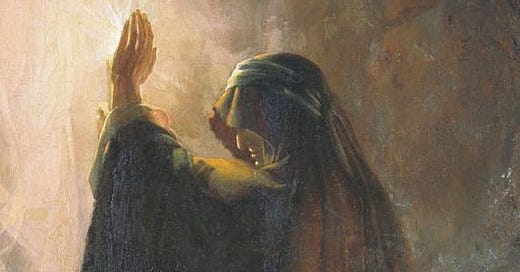



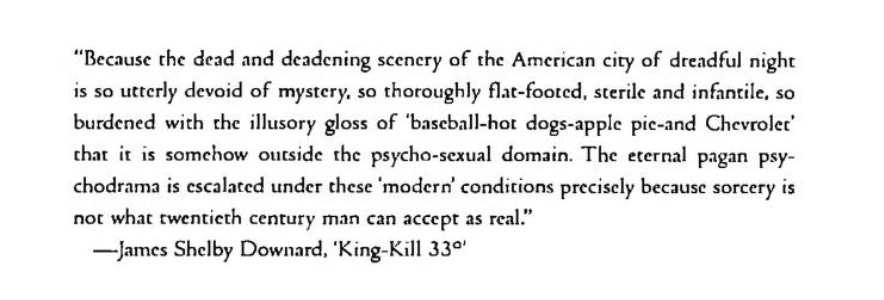

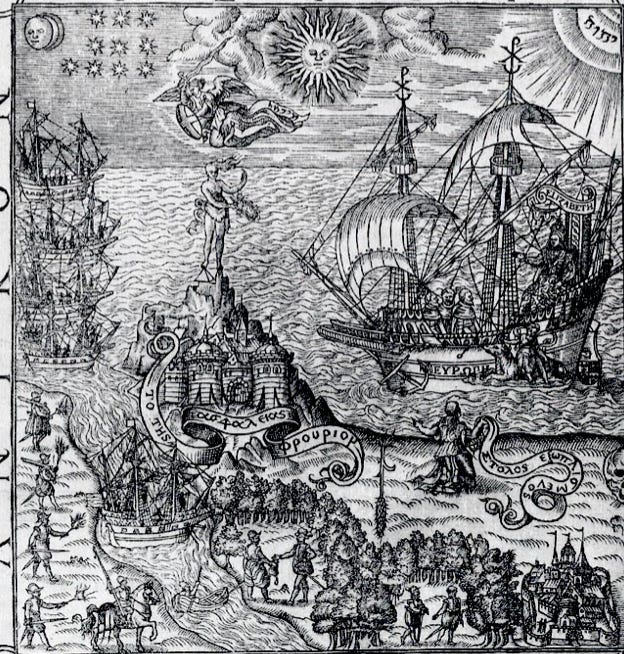
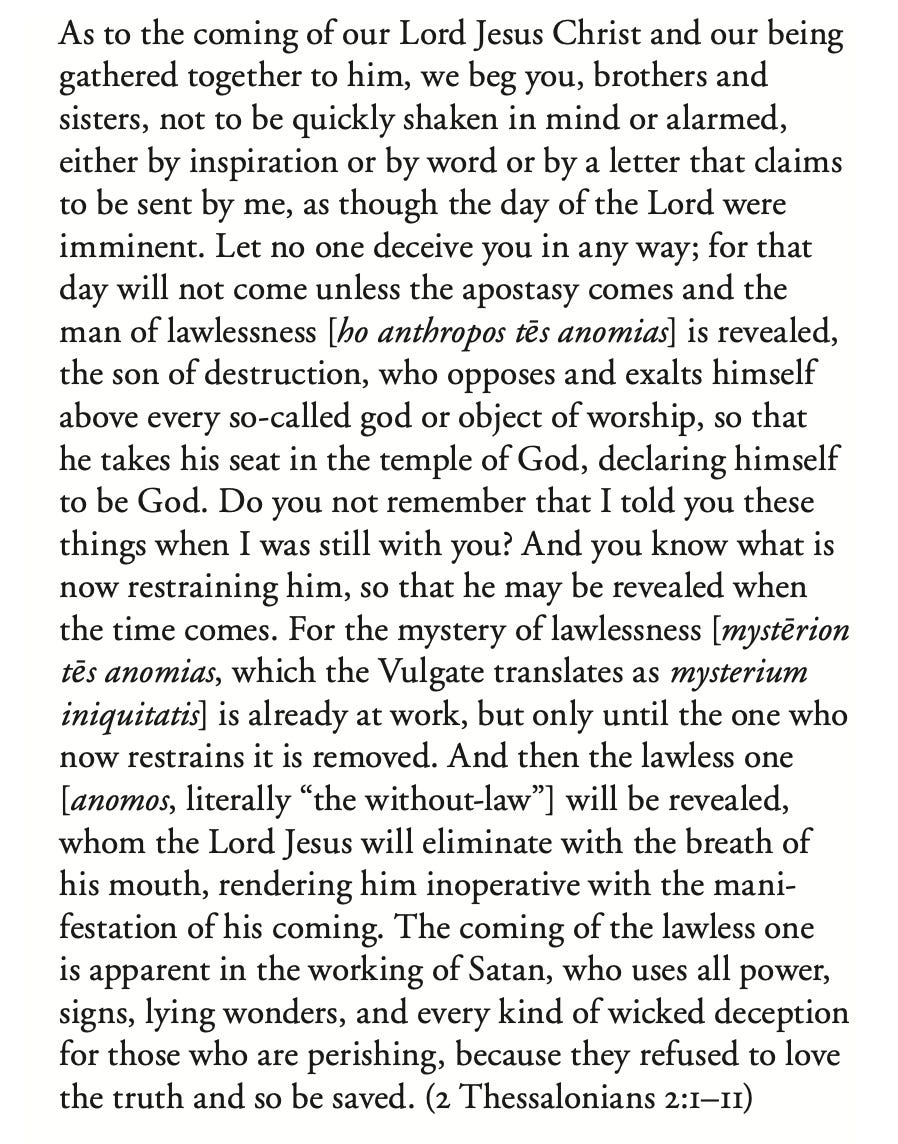
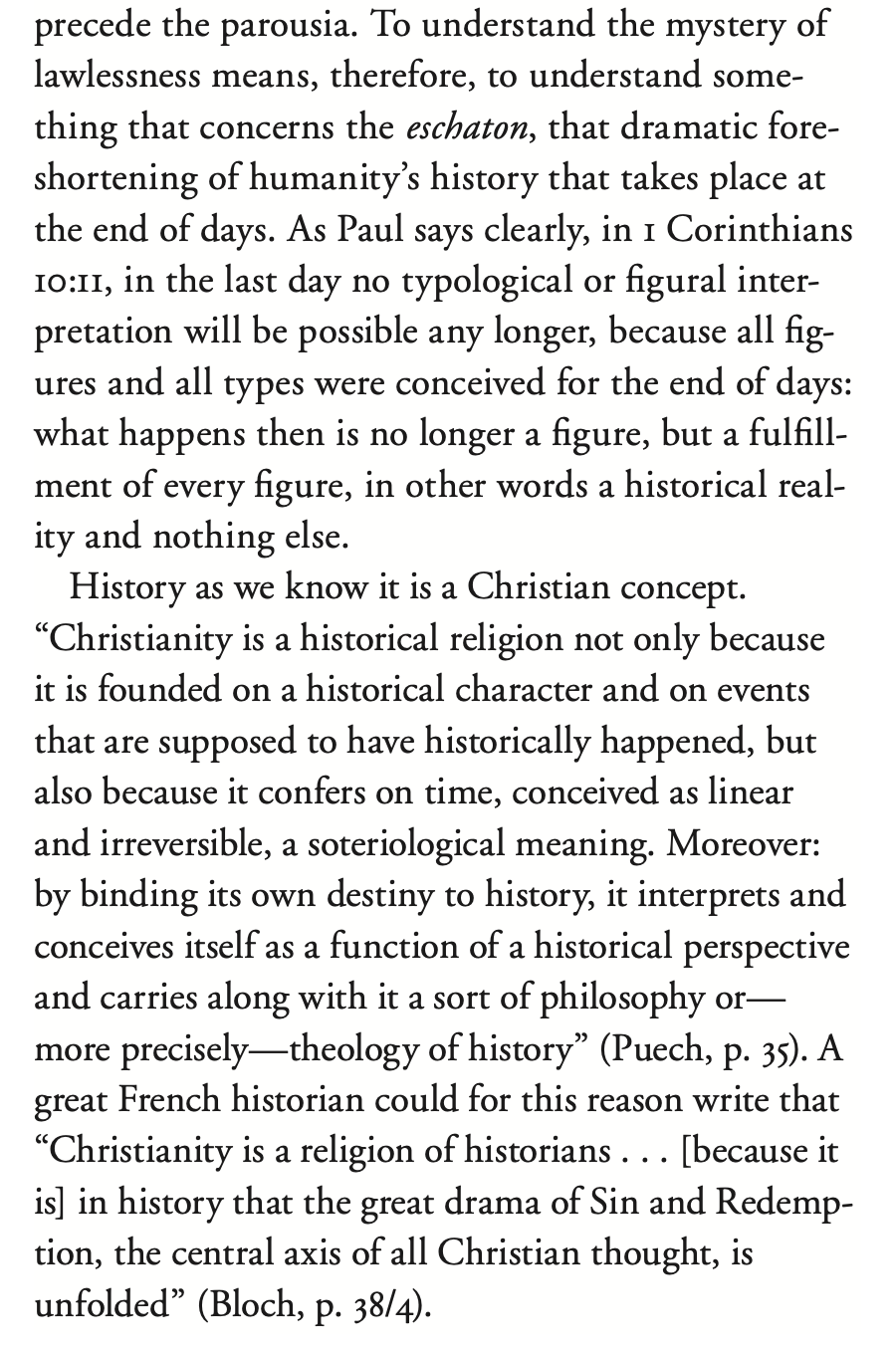

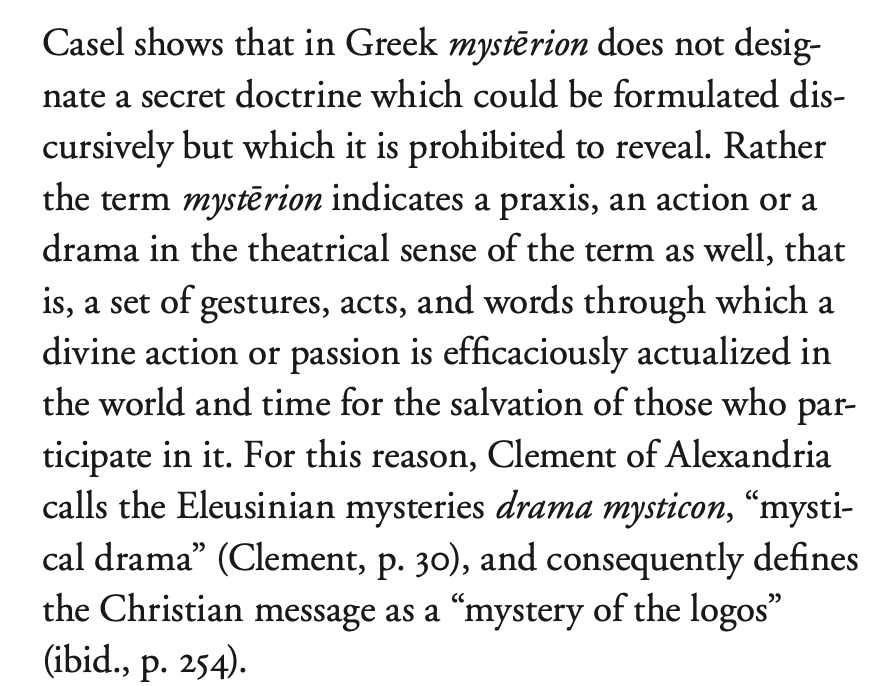




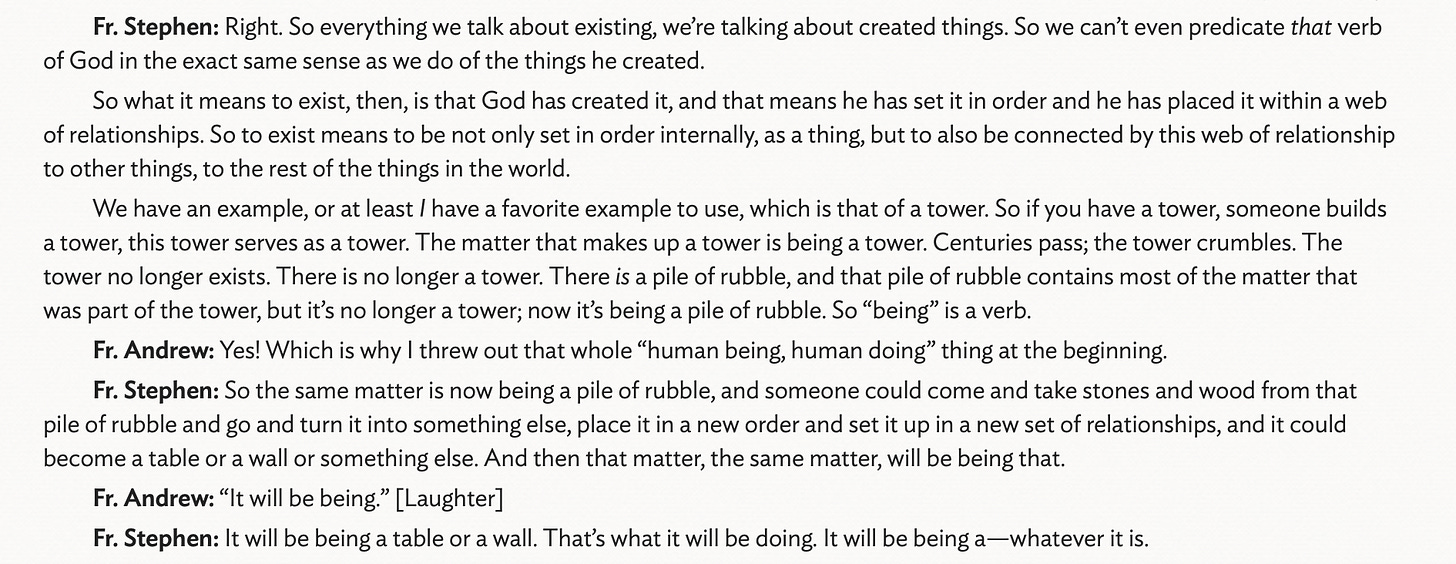

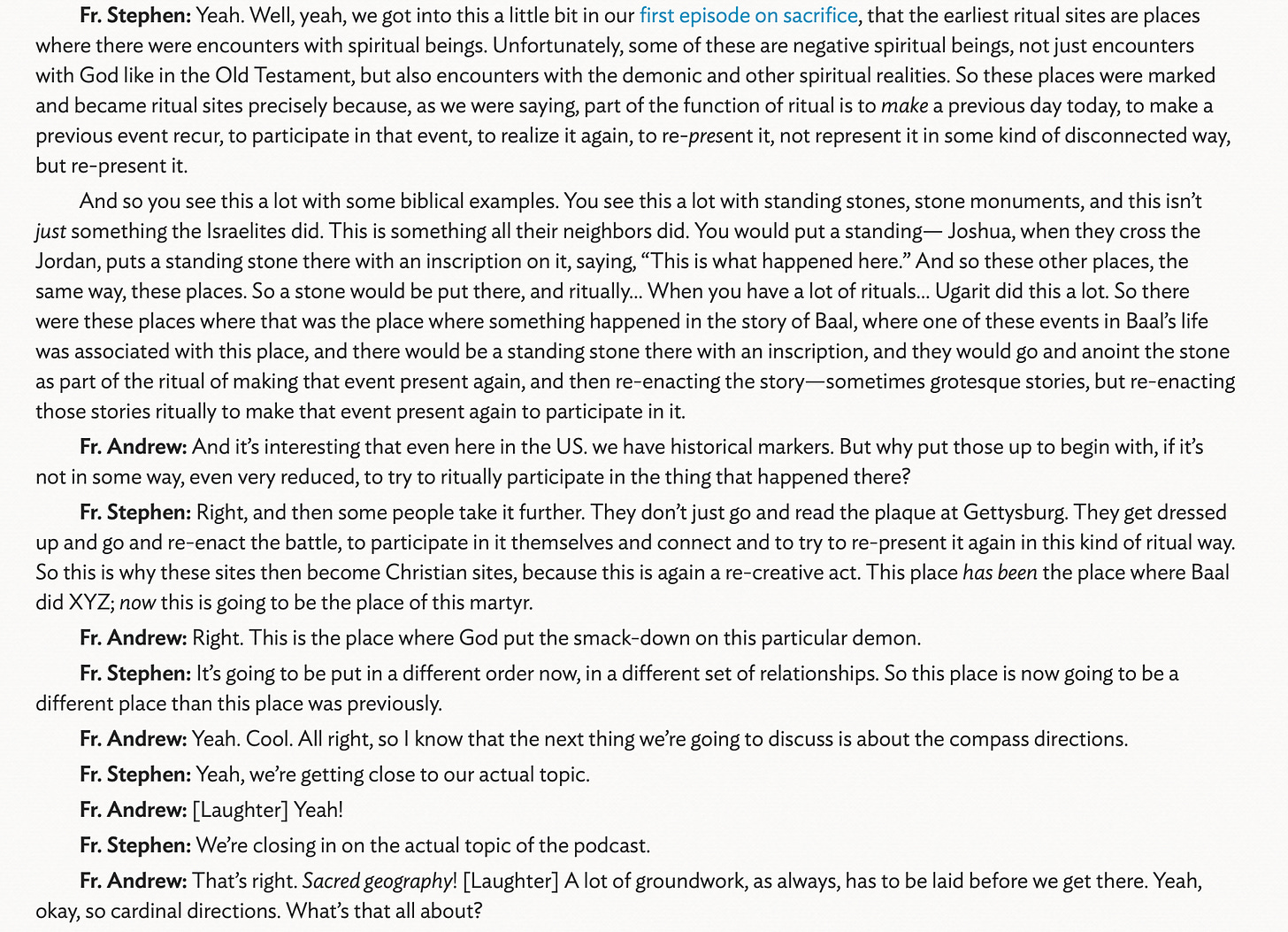
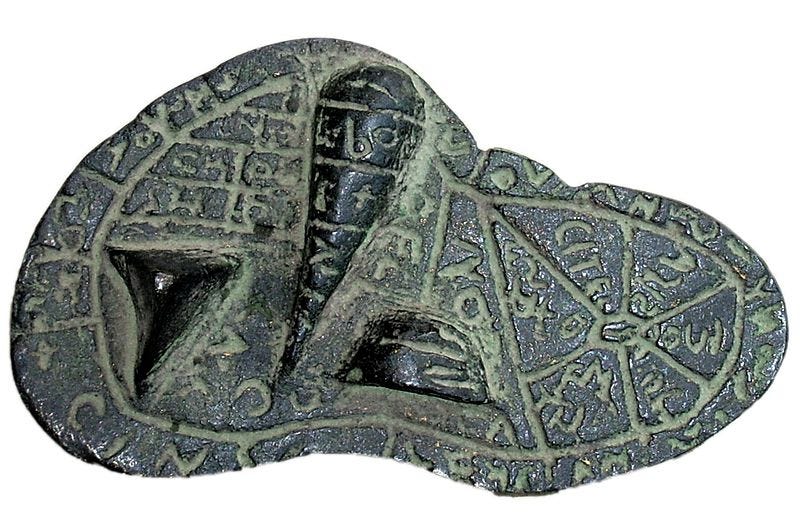
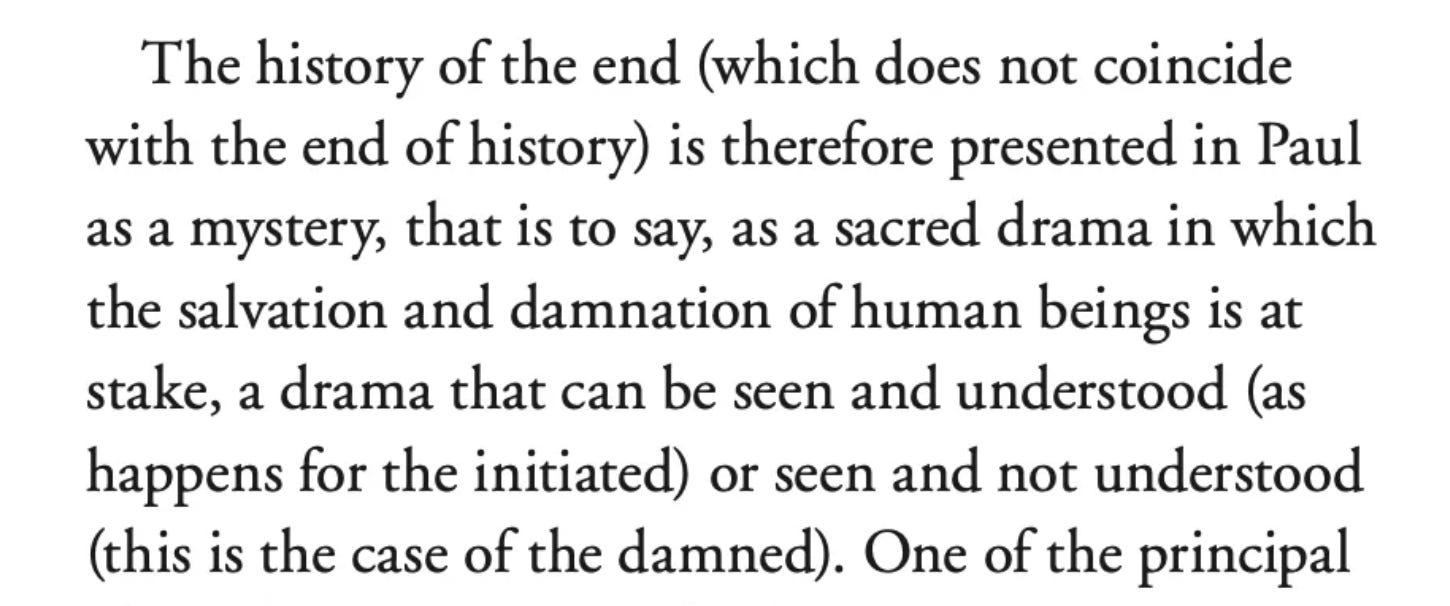
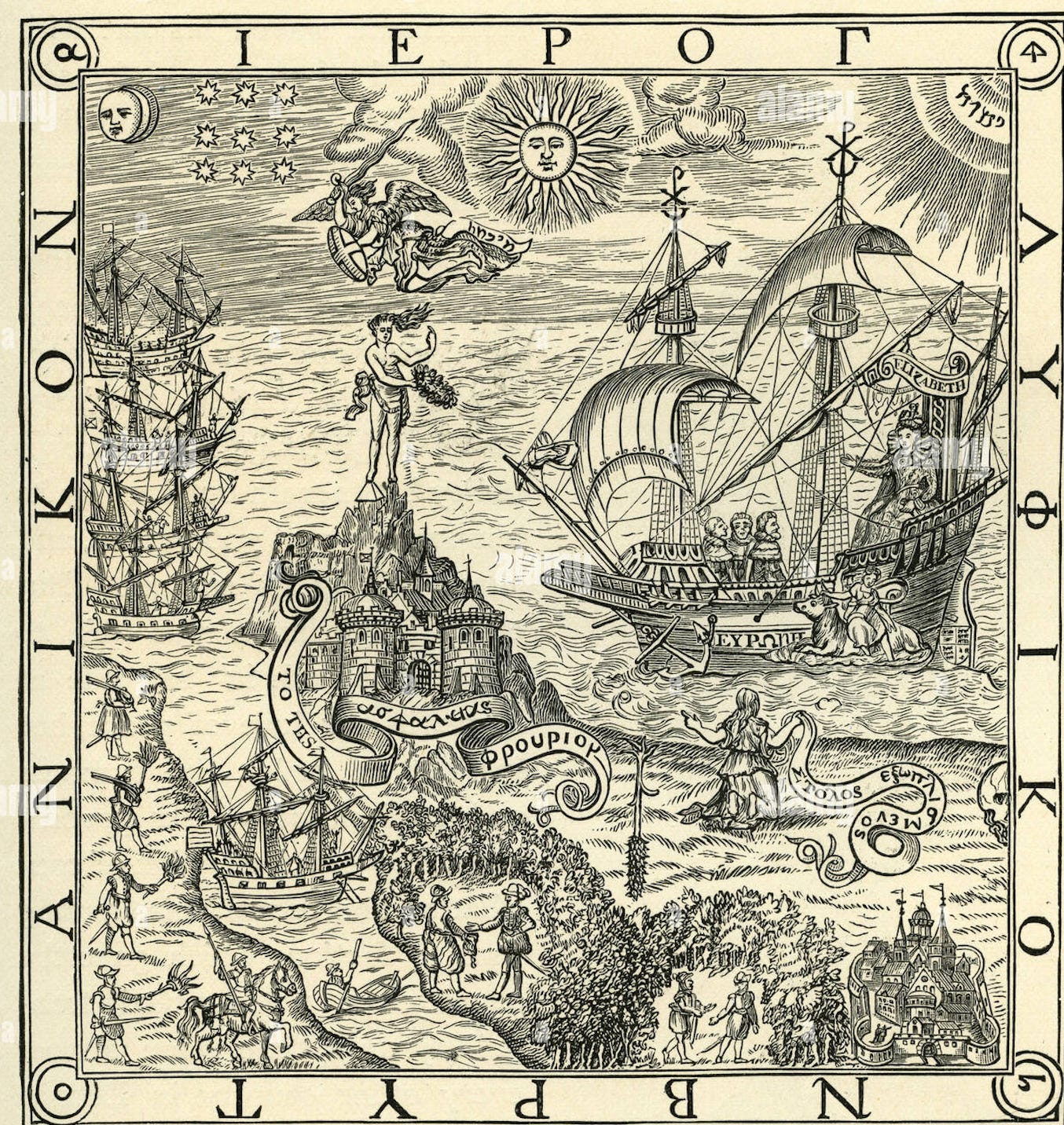
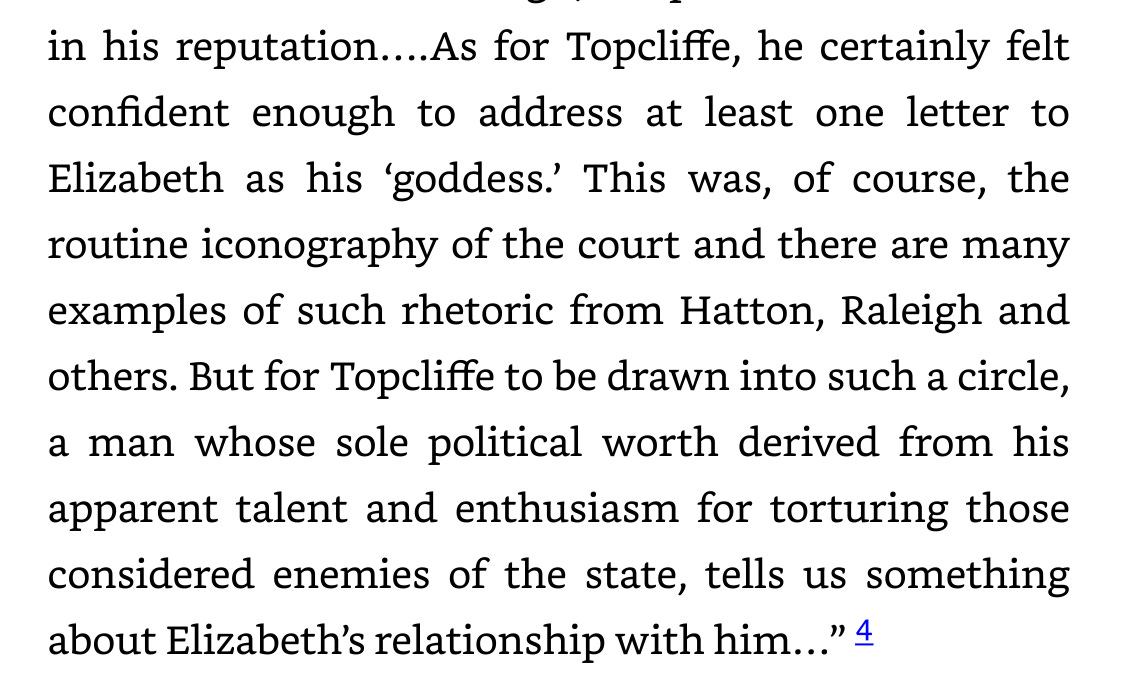
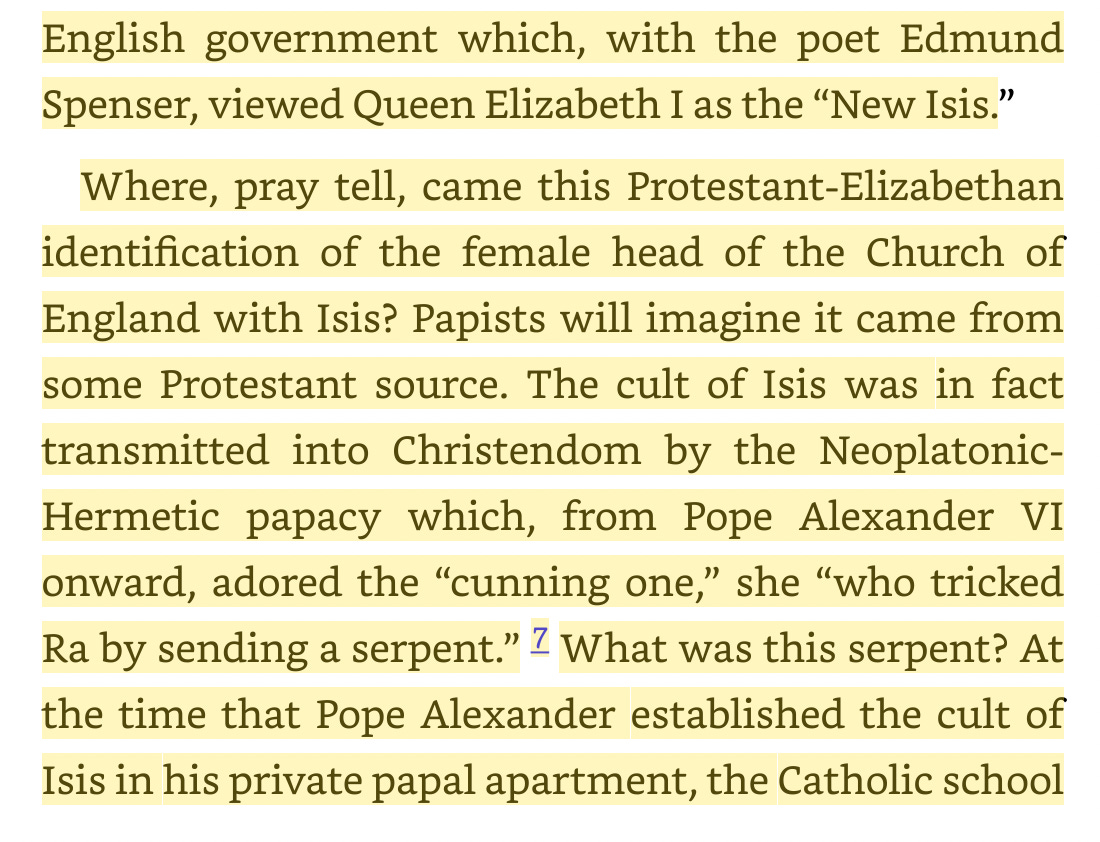
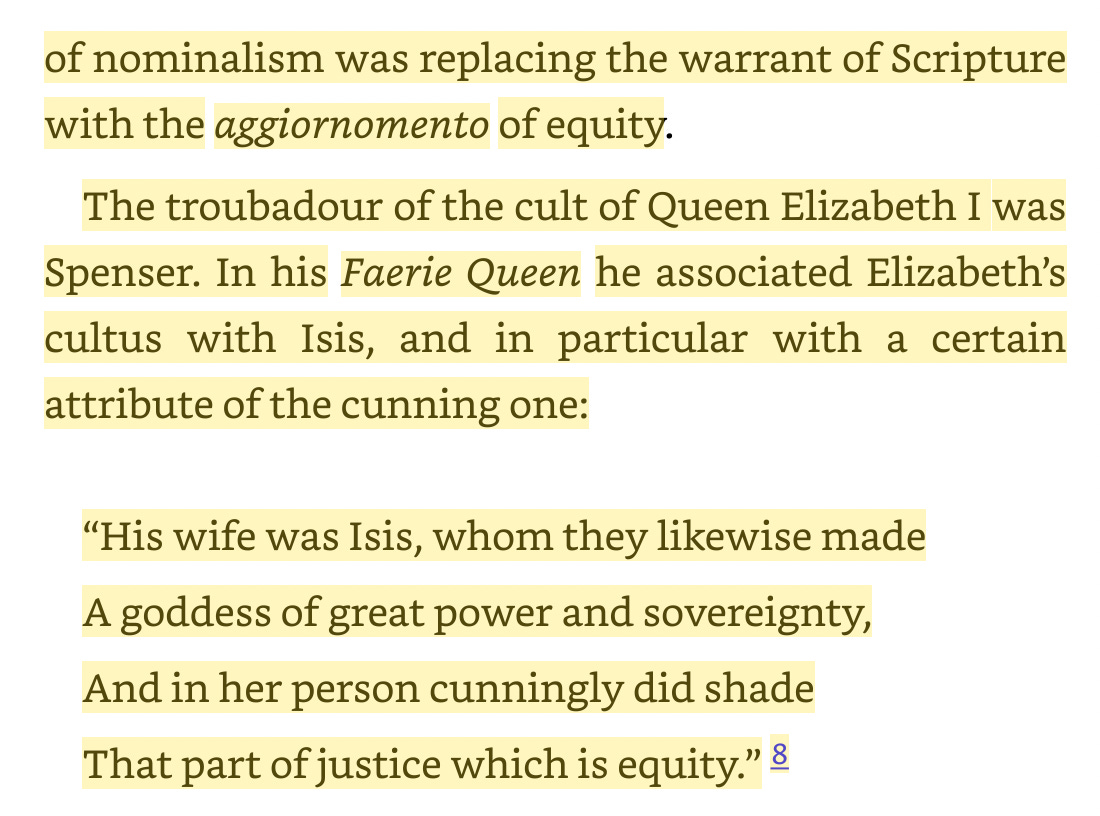
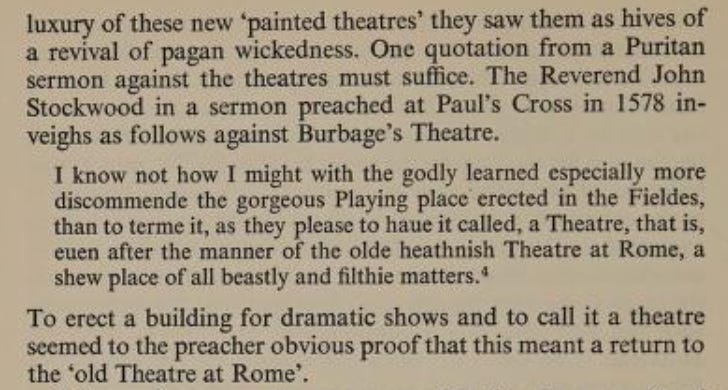




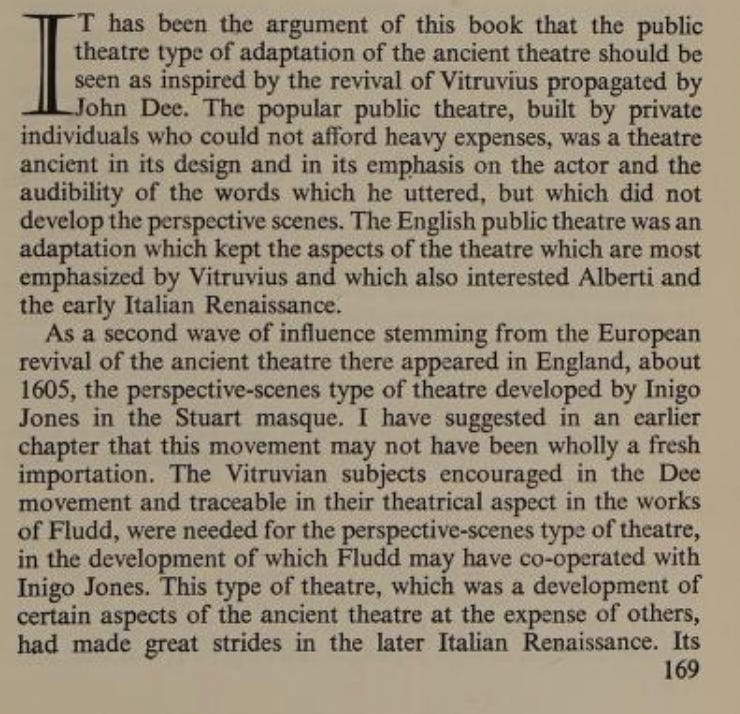
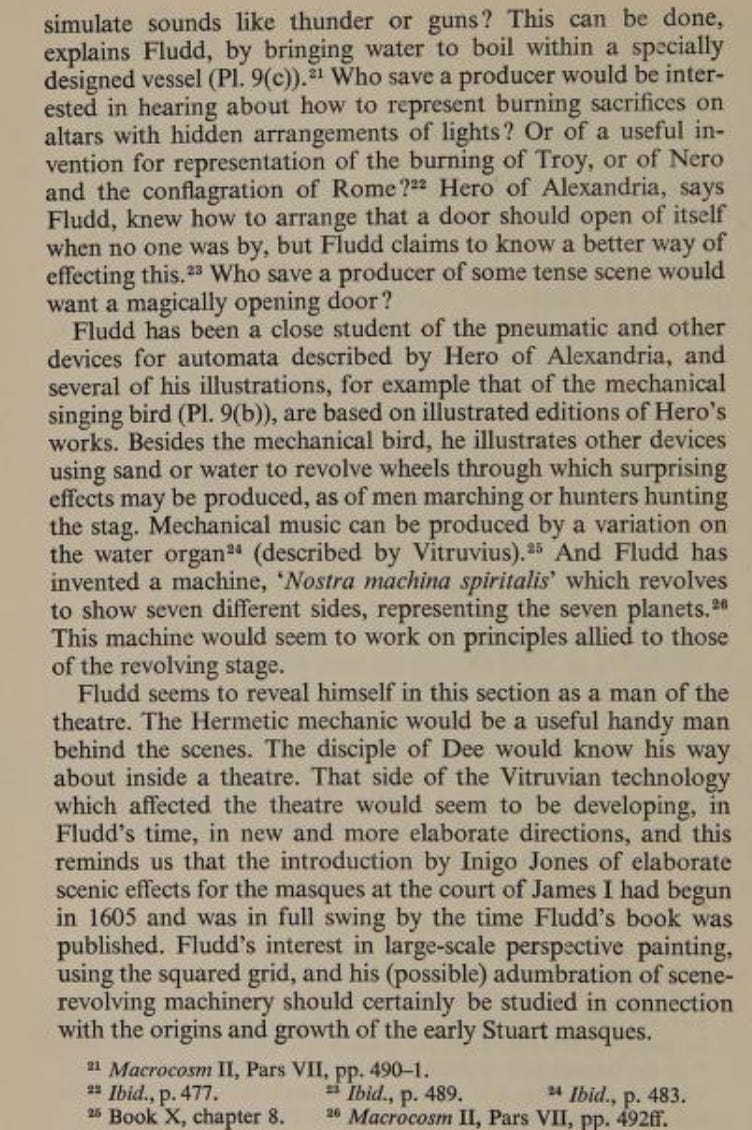


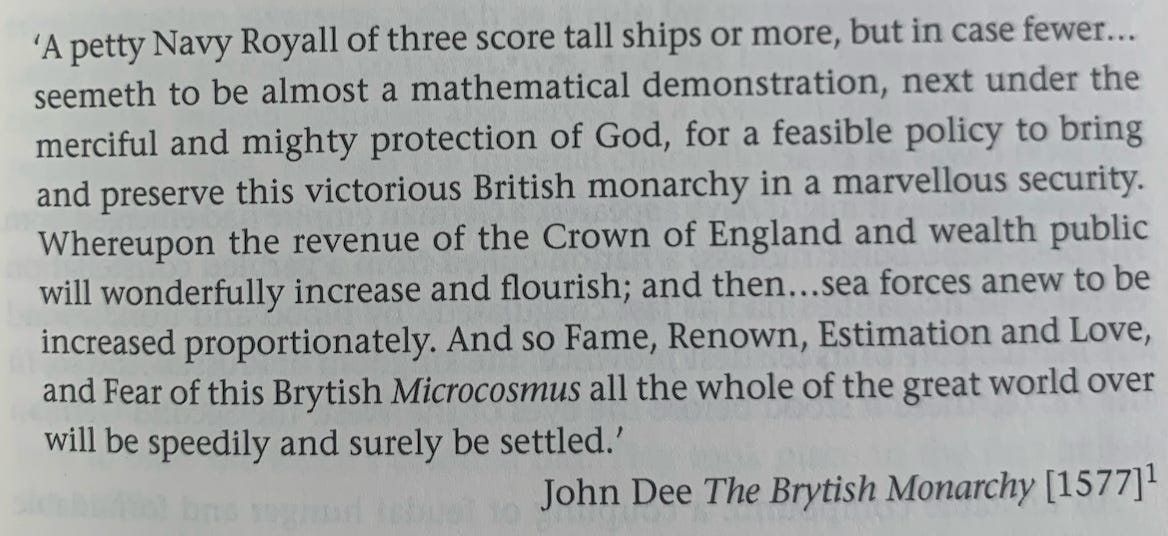
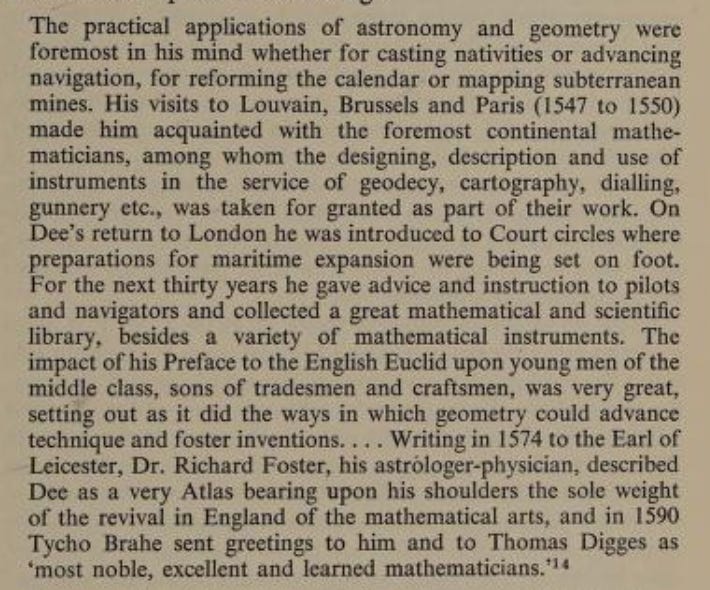

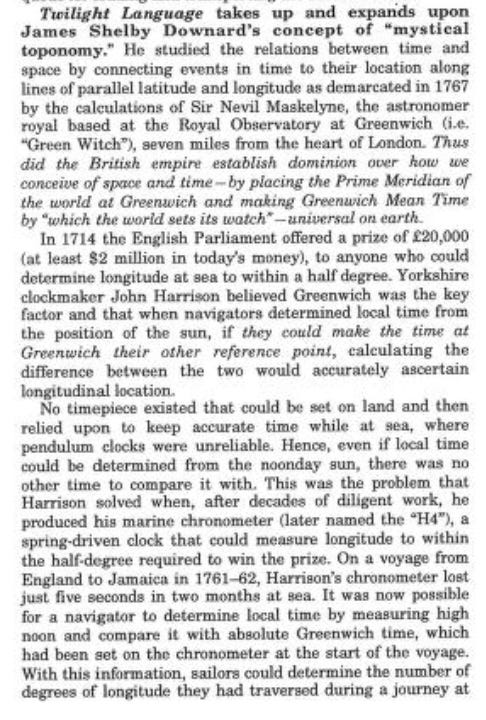
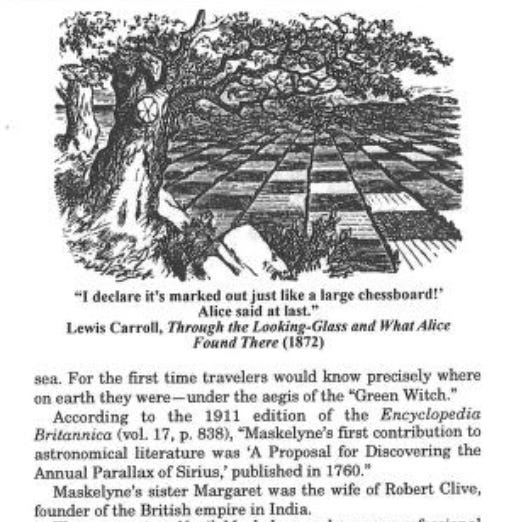

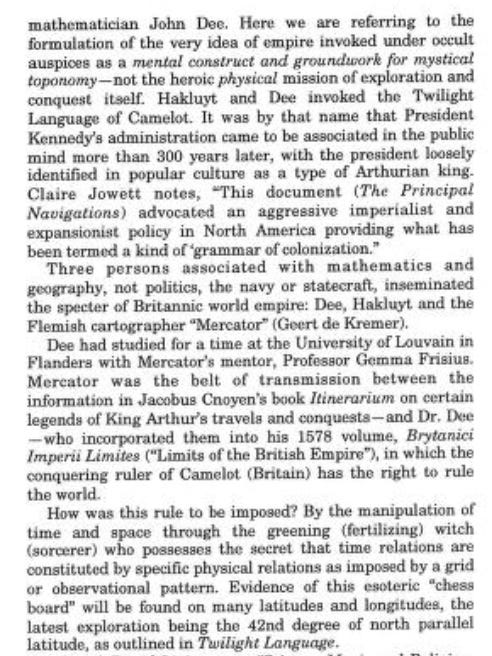

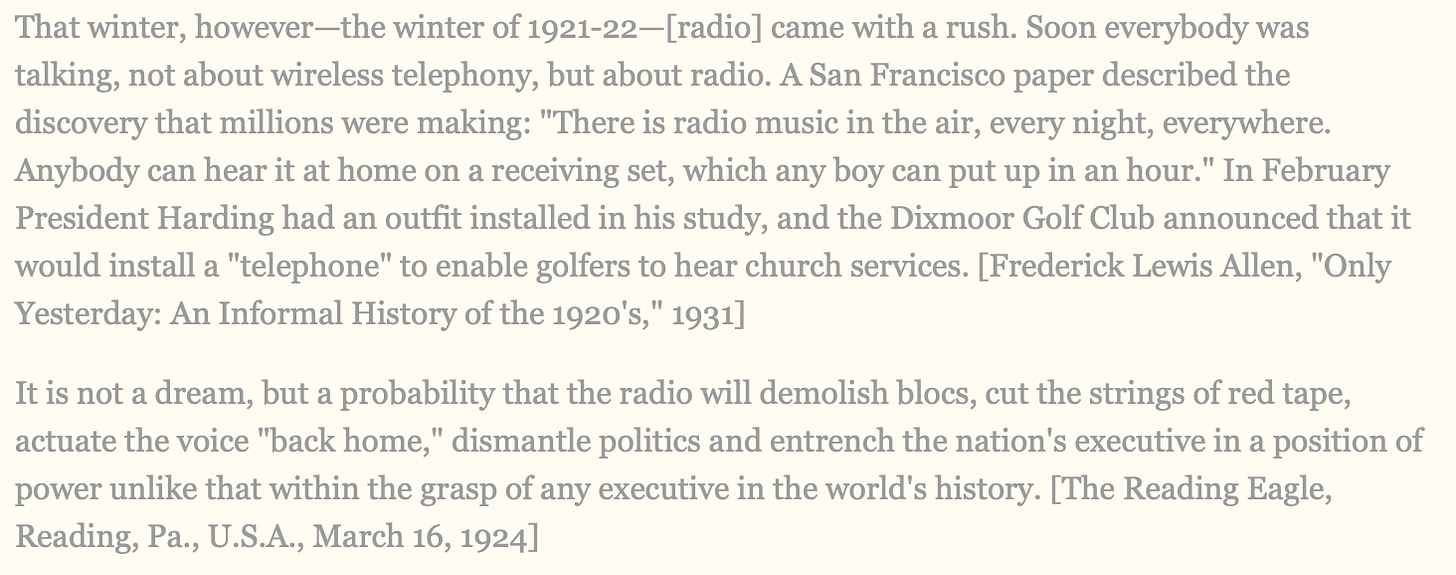

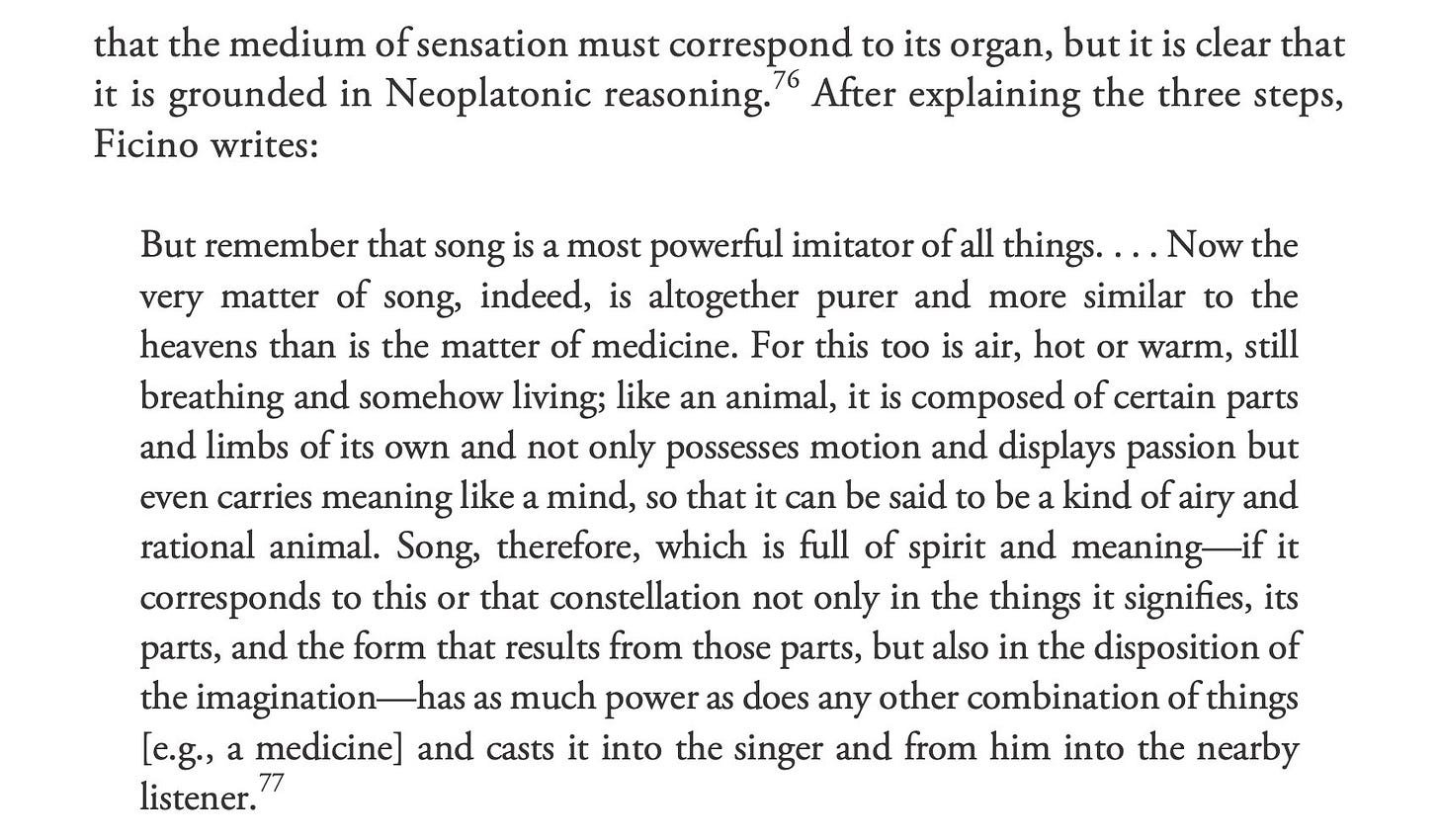
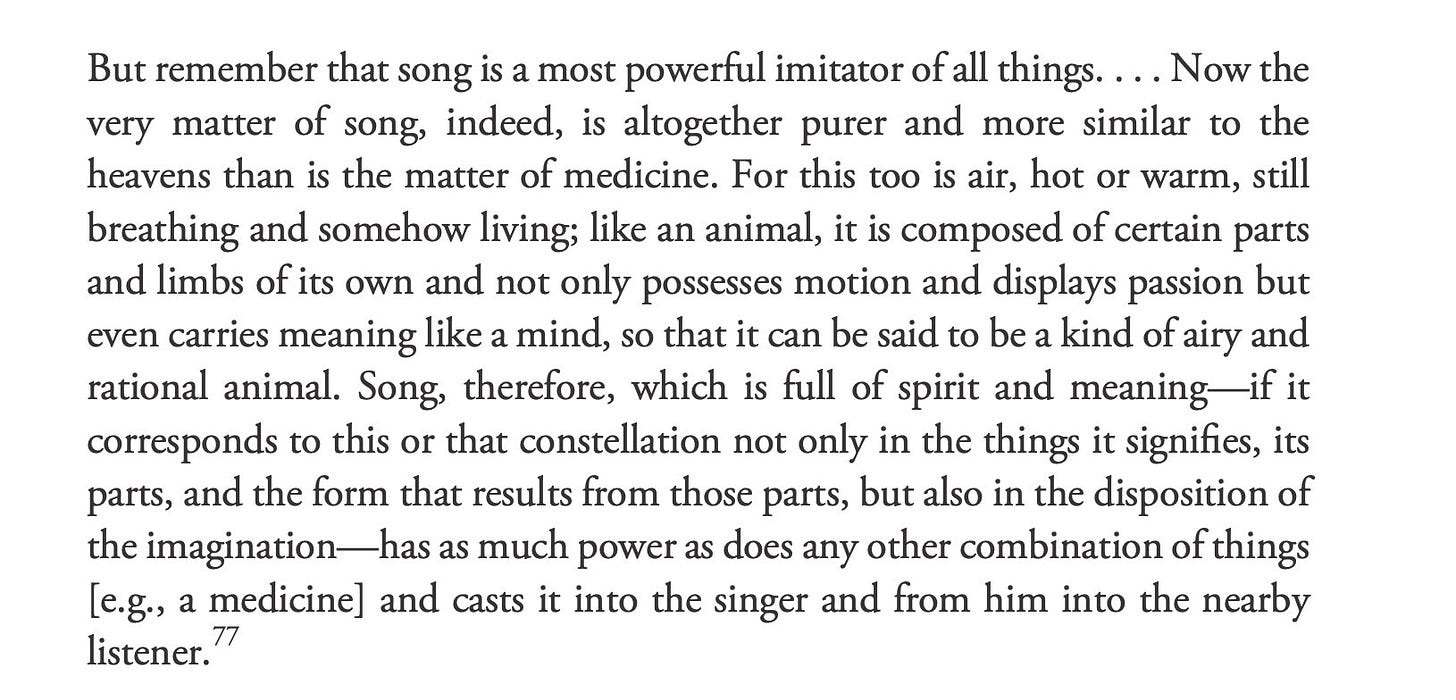

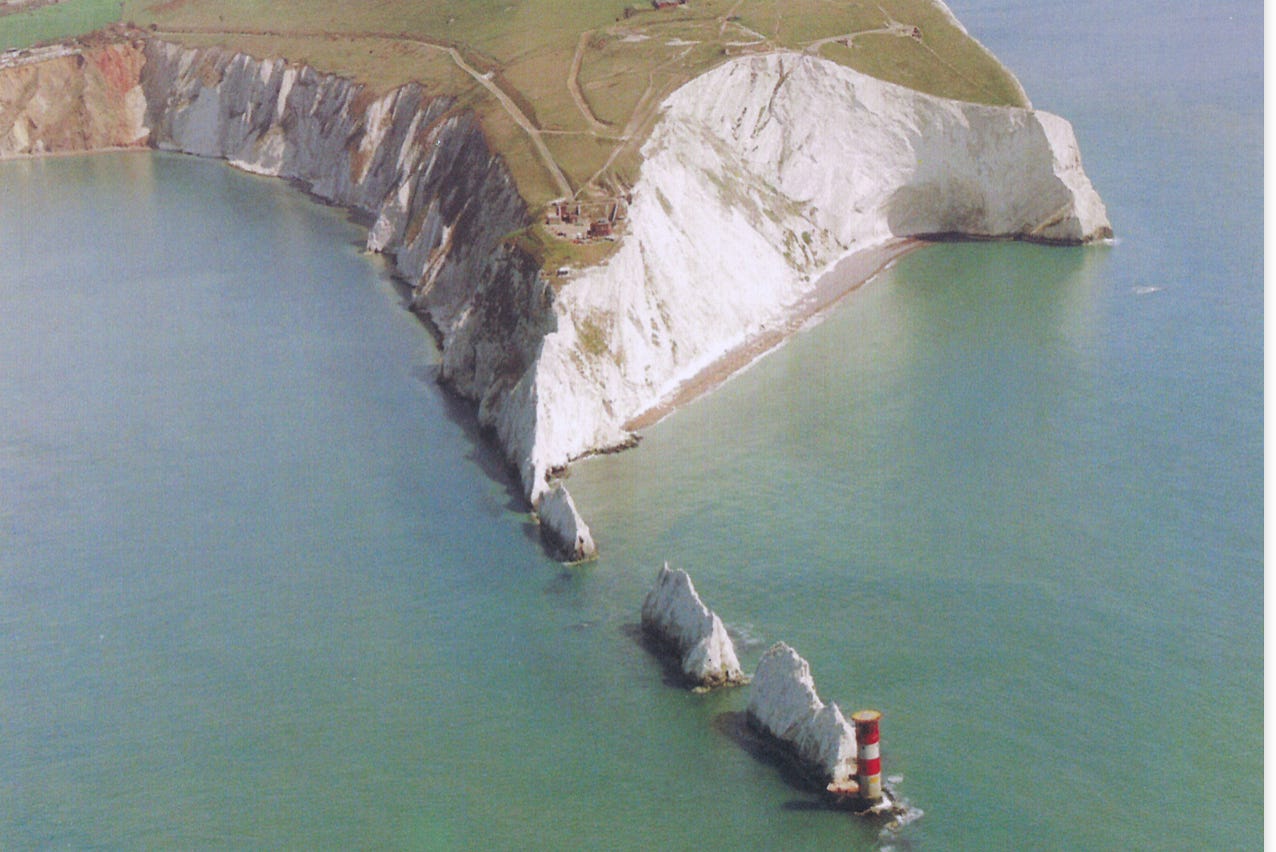



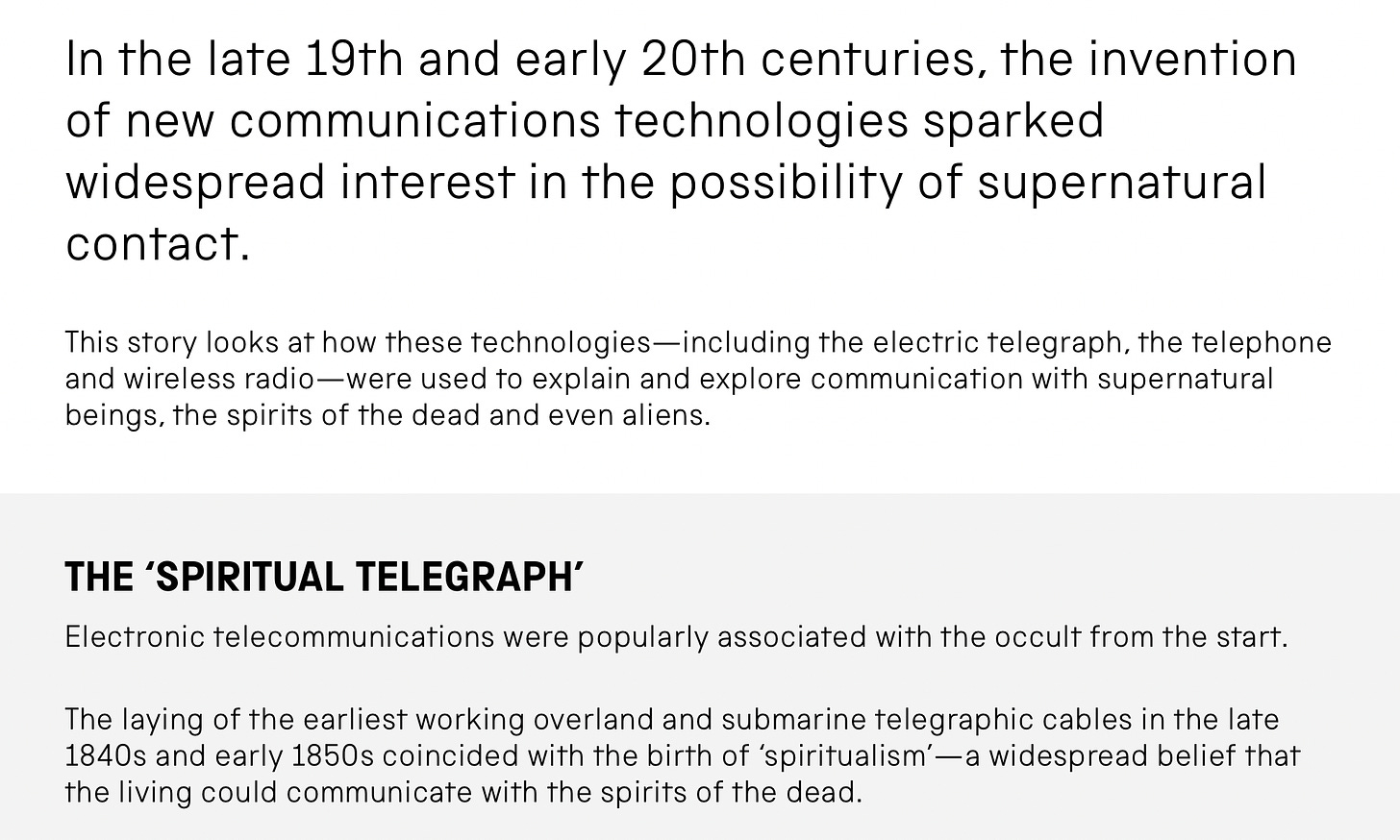



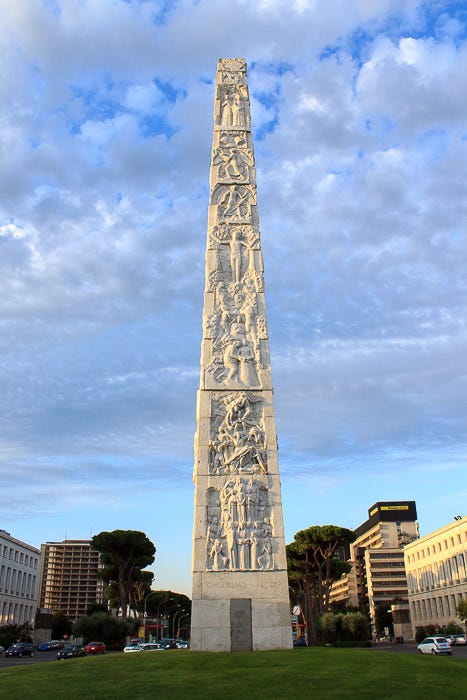
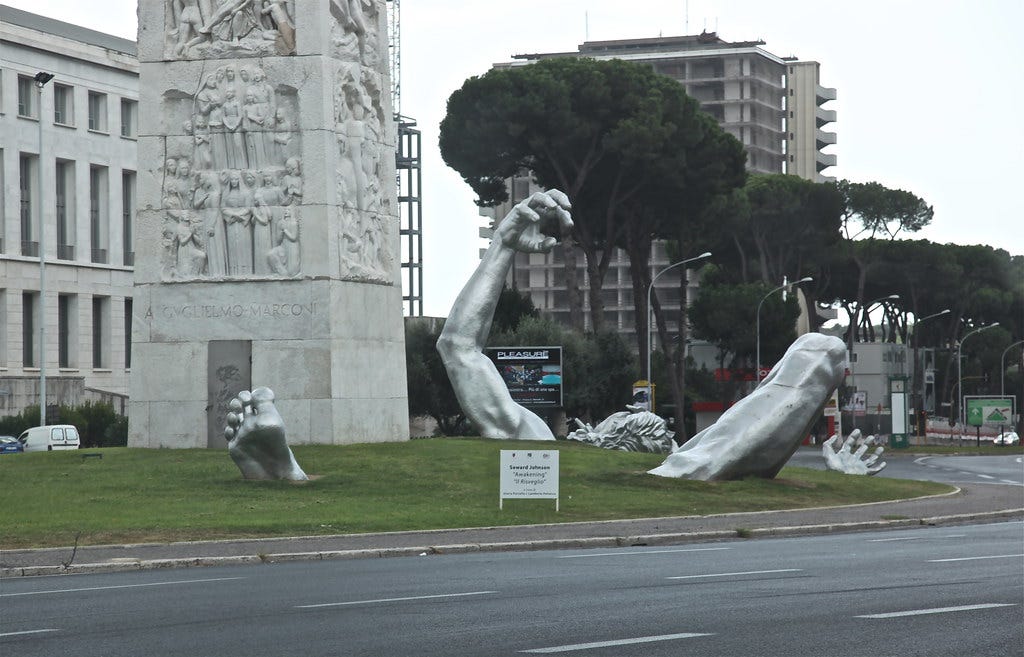


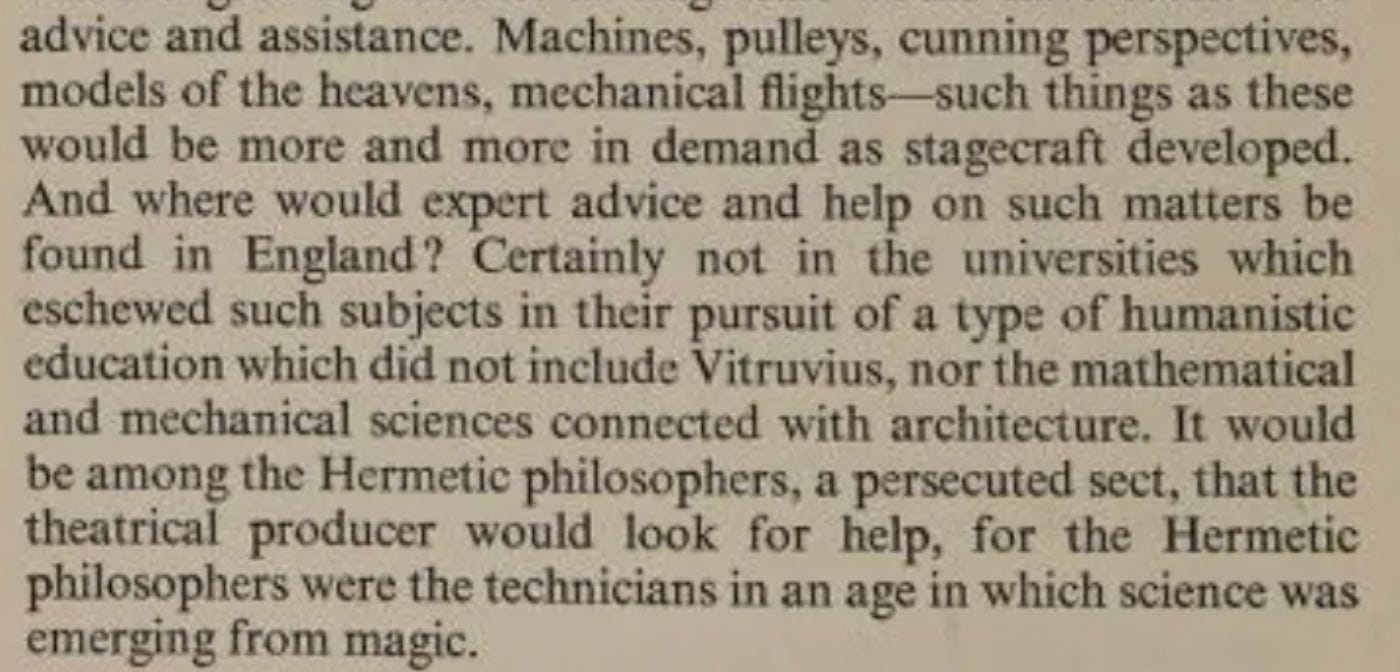












What a remarkable thing to have found someone like you after all these years, looking at and writing about the same things.
I was beginning to think that I was the only one that was coming to the same conclusions in the anglosphere, and I pretty much stopped writing about them because I thought I was being too wierd even for my small group of wierd, misfit friends.
I’m really looking forward to your next article, and I thank you very much for all of the excellent work in this post and your other articles.
Books could be written on this subject. I have oft wondered about the explosion of fiction, especially in the English language, that took place in the 19th century. What motivated it, and what forces were at work making it happen? Being lost in fiction is bad for one's mind, and it seems as if many of the most fantastical ideas people hold sancrocanct today originated with fiction, particularly with the fiction of the 19th century. Ideas about space, dinosaurs and the like. Fiction, much like pop music, is intended to be a mind worm, altering our collective morphic resonance in ways we wouldn't consent to if we understood what was being done up front. For this reason, I haven't subscribed to television in years (trying to protect my children mostly), and I have pretty much stopped listening to the rock and roll of my youth.
In the book, Black Boy, an autobiography by Richard Wright, his grandmother asks him why he's reading fiction, if it isn't true? Because if it isn't true, then it's a lie, and he should be reading his Bible instead. There's some wisdom there...
On an unrelated note, Substack app on the phone includes a voice to text feature. So I used it to listen to this on a long ride. But the voice to text obviously can't read screen capped text quotes. It does, however, read repeated underscores as "underscore underscore underscore underscore underscore underscore". Just an FYI.